AWARENESS CULTURAL
INSIDE
NOT all the same p. 6
The influx of immigrants—a burden or an opportunity p. 11
Undivided: Could the good news still unite the church today?s p. 15


INSIDE
NOT all the same p. 6
The influx of immigrants—a burden or an opportunity p. 11
Undivided: Could the good news still unite the church today?s p. 15

Trudy is a diesel mechanic working in a shop that has hired newcomers from Eritrea, Congo, Ukraine, and some countries I don’t remember. Some of these newly hired immigrants can’t read their own language, much less English, and they arrive deeply traumatized. Others have it easier—they are only adapting to the Canadian language and culture while trying to earn enough to sponsor their own families. “Only” is a strange word to use about that level of adjustment and stress.
Trudy wasn’t hired as a cross-cultural trainer to explain work orders and million-dollar test equipment to people who don’t understand English, but she’s good at it, so she is the point person in the shop. It cuts into her own productivity, but she is endlessly patient—well, nearly.
A different Trudy, together with her team, has been involved in bringing multiple refugee families to Canada and is also the employer of several members of those families. She could tell you a lot about the challenges newcomers confront while adapting to a Canadian workplace. It’s no surprise that communication would be high on that list—learning to speak basic English is only the first step, she says. For someone who isn’t yet fluent in English, trying to understand verbal instructions is very difficult, and though a supervisor can explain carefully, take time to confirm and be assured that the employee understands, that may only be partly true. Whether that is a result of cultural values or the desire to seem competent, misunderstandings are demoralizing and can put workers in danger.
In this issue of The Messenger, we will be talking about important factors in interacting crossculturally—something many of us already experience. They apply not just to sponsorship activities but to our work life because it’s in places of employment that we have some of the most sustained and important interactions critical to a newcomer’s successful integration. Co-workers rub shoulders daily in a peer-to-peer relationship creating an opportunity to form healthy relationships and gain understanding about each other. Unfortunately, it’s also a place where
misunderstandings and misaligned cultural values can wear on people, and instead of combating racial division, a divide can grow and intensify.
Adapting to Canada is a huge challenge for newcomers, but it’s also demanding for Canadians. We are not all equally skilled or confident relationally, and we don’t all have the training to understand why the differences exist or how they play out.
We’re fortunate that the EMC and organizations close to us have a wealth of people who know their way around cultural questions. In this issue, Arley Loewen and Doris Penner write both to encourage interaction and to equip us for it.
A few good-humoured missionaries will also share their own cultural missteps and awkward encounters for our benefit. They are a reminder that no matter how competent and prepared we are, we will make mistakes when we step out, and that’s okay. Mistakes, awkwardness, and sometimes feeling stupid are all okay. It’s being unkind or refusing to make space for others that’s not okay.
We hope you enjoy this issue and find something that encourages you as you keep working at being like Jesus.
Every community will have a diversity of views and opinions, which provides opportunities for us to learn from each other, being quick to listen, slow to speak and slow to become angry (James 1:19). Our discussions are inevitably impacted by our own experiences, and the experiences
of people in our lives. These discussions should also reflect the reality that some groups and individuals have not always felt welcome in Christian communities. We welcome your responses to articles and topics discussed in The Messenger. – Board of Church Ministries
– Erica Fehr
We are not all equally skilled or confident relationally, and we don’t all have the training to understand why the differences exist or how they play out.
6 NOT all the same
– Arley Loewen
11 The influx of immigrants— a burden or an opportunity?

– Doris Penner
15 Undivided: Could the good news still unite the church today?
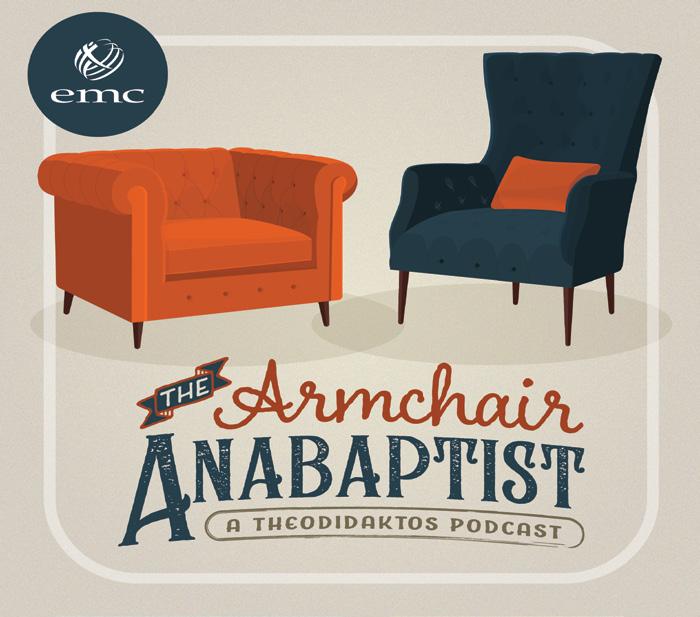
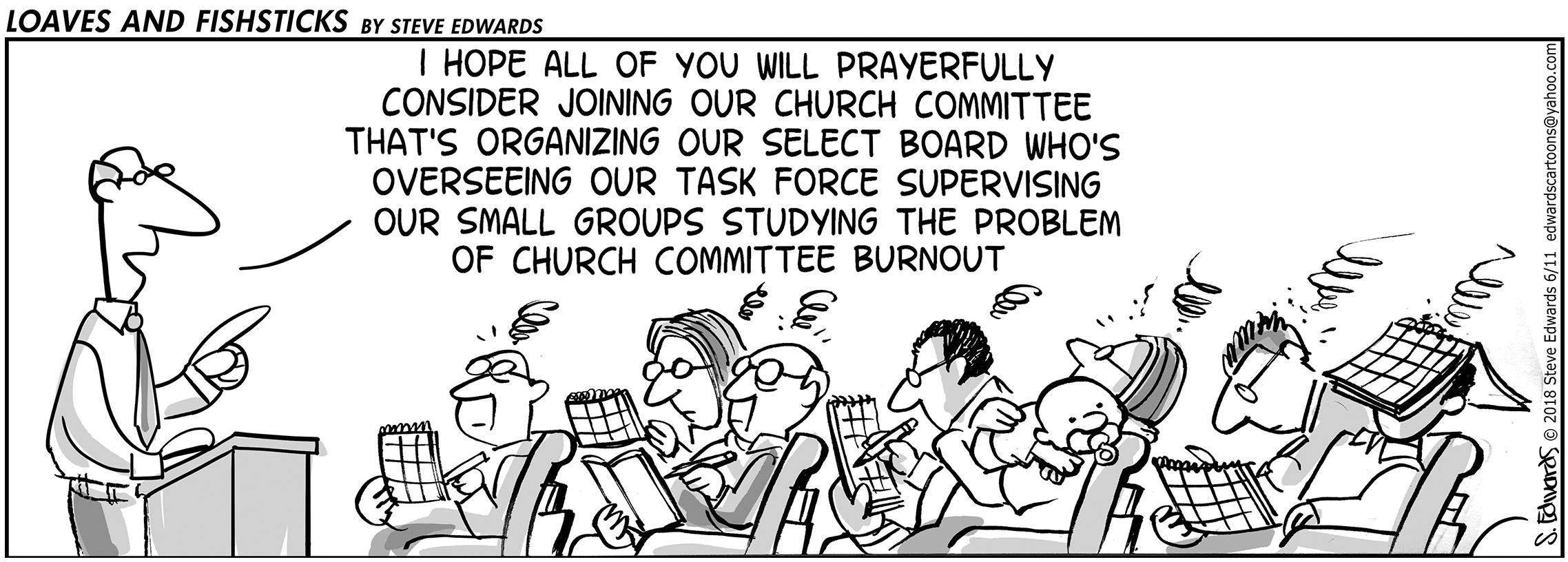
– Terry Hiebert
18 Ministers retreat for renewal: Singing God’s Story
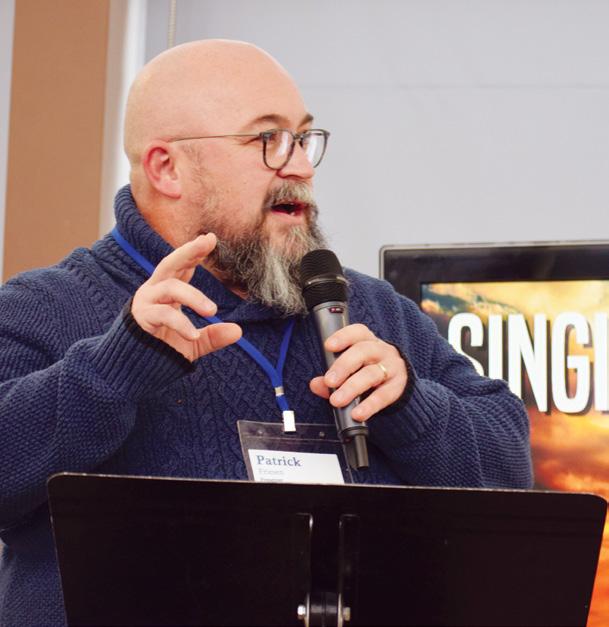
– Phil Hamm
20 Council approves release of Aberdeen, 2023 budget of 1.8M
– Rebecca Roman
Columns
5 A Path To Peace Mind the little things
– Kevin Wiebe
34 His Light to My Path Piano lessons
– Karla Hein
35 Further In and Higher Up Robinson Crusoe Christians
– Layton Friesen
36 Kids’ Corner Something new
– Loreena Thiessen
Volume 61 No. 1
MANAGING EDITOR
ERICA FEHR
REBECCA ROMAN
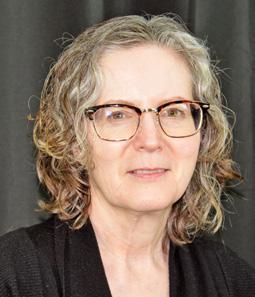
PUBLICATION AND PURPOSE
The Messenger is the publication of the Evangelical Mennonite Conference, 440 Main Street, Steinbach, MB R5G 1Z5. Its purpose is to inform concerning events and activities in the denomination, instruct in godliness and victorious living, inspire to earnestly contend for the faith.
Phone: 204-326-6401
messenger@emconference.ca www.emcmessenger.ca www.issuu.com/emcmessenger
ISSN: 0701-3299
Publications Mail Agreement Number: 40017362
Second-class postage paid at Steinbach, MB
COPYRIGHT
The articles printed in The Messenger are owned by The Messenger or by the author and may not be reprinted without permission. Unless noted, Scripture quotations taken from The Holy Bible, New International Version® NIV®, Copyright © 1973, 1978, 1984, 2011 by Biblica, Inc.TM Used by permission. All rights reserved worldwide.
SUBMISSIONS
Views and opinions of writers are their own and do not necessarily represent the position of the Conference or the editors. Advertising and inserts should not be considered to carry editorial endorsement.
Letters, articles, photos and poems are welcome. Submissions should be sent to messenger@emconference.ca
CHANGE OF ADDRESS AND SUBSCRIPTIONS
Print subscriptions are free of charge to all members and adherents of EMC churches in Canada. For all others, print subscription rates are as follows: $20/year ($26 U.S.), Manitoba residents add 7% PST.
To sign up for the email newsletter or submit an address change, email messenger@emconference.ca
ADVERTISING
The Messenger does not sell advertising, but provides free space (classified and display) to enhance our Conference, its churches, boards and ministries; inter-Mennonite agencies and educational institutions; and the wider church. Ads and inquiries can be sent to messenger@emconference.ca.
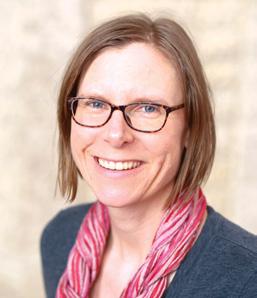
We give thanks to God for the continued strong support of EMC ministries, and we acknowledge the contributions of EMC churches and individuals who give so generously.
- The Board of Trustees
*This year-end financial report is preliminary and unaudited. **Income includes donations and transfers from other funds (e.g., estate funds).
Many years ago, I visited Pastor Edwin Plett to discern the call to missions I was experiencing. He responded, “Praise God, we’ve been praying for more missionaries to be sent from our church!” The Prairie Rose EMC and EMC Missions were faithful senders as they supported Brenda and me throughout our years of service.
What was the role of the prayers of the church in calling and sending our family? I think it was foundational, and I’ve often pondered what could happen if all 60-plus churches in the EMC made prayer for sending workers a priority in their congregations.
At our fall planning meeting, the EMC national office staff declared that this year we would focus on strengthening our approach to the recruitment, training, placement and retention
of missionaries, church planters and pastors.
Late last fall, I met with Calvin Tiessen who offered to provide us with a portion of his time to dedicate to this task. Calvin is an experienced cross-cultural worker on home assignment in southern Manitoba until June. He has a passion to motivate young people into full time ministry and will be working together with our staff to help us to find ways of “strengthening our approach.”
Calvin will be visiting EMC churches, spending time with students on the SBC campus, and examining our current models of engaging with potential workers to see how we can improve. Please welcome and encourage him as he is involved in this work over the next six months.
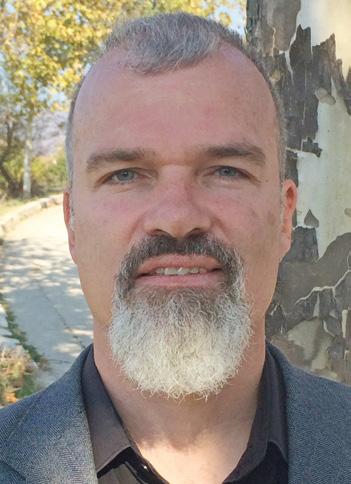 – Tim Dyck, Executive Director
– Tim Dyck, Executive Director
Iwas building raised garden boxes and had begun to set them in the yard. I was trying to make each box properly squared with itself and all the other boxes, and there were eight of them, so it took some doing. After getting discouraged one evening, I called a friend from church to come help.
We got to work together and did the math over and over again, trying to make everything square and even, but no matter what we did, we ended up having an extra thirteen inches from one side to the other—which was very noticeable—and things looked crooked.

To make a long story short, we had tried to be meticulous with our first garden box so we could measure off that one and use that to align all the others. My friend discovered that my first box, however, was off by a mere quarter of an inch. That is only 6.35 mm, or half the width of my pinky finger. But that little mistake put our string line on a bad trajectory that ended up being off the mark by over a foot by the time it got to the last box.
In life, there are plenty of times when we miss the mark in small ways. “It’s no big deal,”
we think to ourselves. But left unchecked, those little things can change our trajectory by a major distance over the long haul. What began as a small mistake we didn’t even notice can become a glaring source of pain, and we may struggle to understand how we got there in the first place. This is why the little things are so important. We may create major problems for ourselves and others through small but consistent steps away from the path the Lord desires for us.
Very often, when we look at the big messes in our lives or in our world, we become paralyzed, but this is also when looking at the small things becomes so transformative. We may not know how to fix all those big things. What we may know, however, is something small that we can do today or tomorrow or this week.

What we might dismiss as “no big deal” often ends up being a very big deal in the long run. Something off the mark by half the width of my pinky finger can be a glaring issue down the road if left uncorrected. So, mind the little things today because they will truly matter tomorrow.
By Kevin WiebeWe may create major problems for ourselves and others through small but consistent steps away from the path the Lord desires for us.
 By Arley Loewen
By Arley Loewen
When we lived in Toronto in the 1990s, we would take long journeys to Manitoba for Christmas and summer breaks. On one trip we stopped in at the Clearspring Mall in Steinbach, as I (Arley) had to pick up some food. Janice and the girls waited in the car. Janice said, “Let’s see who can see Dad come out of the store first.” They waited and waited; Dad wasn’t coming, but lots of other men were. Suddenly one of the girls blurted out, “They all look the same, Mom! They all look like Dad!”
How quickly and naturally we generalize people. Today, as more newcomers are coming to Canada it is easy to do the same—to lump them into one singular group, as if they were all the same. We are the West, and they are the Rest, to use the title of a controversial analysis of Western civilization (Civilization: The West and the Rest by Niall Ferguson).
To be true, categorizing humans into groups is normal. The problem is when we place people into only one group. We often do this based on a person’s religion or cultural area. And while a person’s religious or cultural allegiance is very important, when we do this, we reduce people to something less than they are. And they remain outside of our group.
We all belong to a variety of groups. A person can be, at one time, a Canadian citizen, evangelical Christian, German-speaking Mennonite ancestry, politically conservative, female, athlete, young mother—each category is a distinct affiliation, though some categories are more significant than others.
However, cultural and religious distinctions are important, and we begin to understand people who are different than ourselves in this way. In this article, I want to highlight similarities and differences of the many newcomers arriving in Canada, and as we will see, they are not the same as each other.
One helpful way to describe differences is to talk about people coming from warm or cold cultures. Sarah A. Lanier has a very easy-toread book on understanding different cultures and societies, Foreign to Familiar: A Guide to
Understanding Hot- and Cold-Climate Cultures. This book would be especially helpful for Sunday school or small group studies or mission groups.
A “warm” culture does not refer to weather, nor does “cold” mean cold-hearted. Rather, people from warm cultures are seen as being more relational and community-oriented. On the other hand, people from cold cultures value order and structures, even though they like to think of themselves as social and sociable.

Generally speaking, people from the Middle East, Asia, Africa and Latin America are from warm (relational) cultures. They will emphasize aspects of life such as:
• Personal relationships.
• Making sure that there is a “good-feel” in communication.
• People are more important than time and efficiency.
• Greetings and tea come first, then the actual business, if there still is time.
• The extended family is more important than the individual. They cannot understand the Western world’s senior citizen homes.
In contrast, Europeans and North Americans emphasize aspects of life such as:
• Tasks and jobs. We quickly ask each other, “So what work do you do?”
• Facts. Communication is to provide correct information.
People from warm cultures are seen as being more relational and community-oriented.
• Time and efficiency are very important.
• Logic and order. We must emphasize what is right in contrast to what is wrong, irrespective of who the wrong or right person are.
• An individual and their rights are more important than the group.
This distinction is helpful, and Caucasian Canadians would do well to intentionally “warm up” and stretch themselves to be more flexible and relational. We may think we are relational, but easily overlook how individualistic we have become, in comparison to communal cultures.
Consider these examples:
• One or two individuals live by themselves in a large multi-bedroom house.
• We think it obvious that our daughters and sons date and select their life partners without parental involvement. After all it is her or his own choice.
• We send our elders to senior citizen homes, to live by themselves. (Janice and I spent three weeks in Pakistan in autumn 2022. In our numerous family life seminars we were amazed at how unanimously educated Afghans and Pakistanis condemned the practice of seniors living alone in large institutions, without their families.)
• We can’t imagine having five or more people show up as guests in our homes, and maybe even stay for the night, as large as our homes are.
At the same time, we need to guard ourselves from lumping into one basket all warm-cultured people who come from thousands of varied groups and societies.
We could categorize people by large geographical areas such as Middle Easterners, Central Asians, Latinos or Far East Asians, South Indians and so forth. We can divide people by religions and so we have Muslims, Hindus, Buddhists, Catholics … but that does not mean they are the same as each other.
Samuel Huntington’s The Clash of Civilizations and the Remaking of World Order (2011) divided the world into 11 major
civilizations, though his work has received a barrage of criticism because it minimalizes human beings by making them members of just one group. (See Amartya Sen, Identity and Violence: The Illusion of Destiny.)
We can also compare cultures based on the country people come from—although this is not ideal because most countries are made of up of numerous distinct social groups it is probably the place to start. (Geert Hofstede, the Dutch specialist on international organizational culture, has written profusely on values based on nation states, on the passport a person holds. This is not ideal, because there are usually numerous distinct social groups in a nation.)
Some would rather not classify people at all. Everyone is an individual, unique to themselves. But each person naturally belongs to a society, where people speak a common language, work together, play, socialize and eat.
This is the natural way of humans where members of a society stick together—as the saying goes, “birds of a feather flock together.” Part of every individual’s identity is the group(s) or society they belong to.
So, back to the newcomers who are coming to our neighbourhoods. Yes, they are individuals, but they come from specific nations and societies. The easiest and most respectful way to describe newcomers is according to their passport nations, the countries that they come from: Syria, Afghanistan, Iran, Iraq, Somalia, Pakistan, India Punjab and more.
Yes, it is difficult for many Westerners to know who is who from this maze of nations, and so we can easily make wrong assumptions, such as:
• We may assume that people from Africa (or the Far East or the Middle East) will
Each person naturally belongs to a society, where people speak a common language, work together, play, socialize and eat.
naturally connect with each other. It may be so, but they might also be historic enemies and their languages may be mutually unintelligible.

• We hear that someone comes from Iran and is a committed Christian. We have a Syrian neighbour and feel this could be an ideal opportunity for the two to meet. But let’s be careful, the Iranian and Syrian speak different languages.
• An Asian man wears a turban, so we assume he is a Muslim. Interestingly, many truck-drivers in Canada come from the Indian Punjab and belong to the Sikh religion. A tight turban is part one of the Sikh’s articles of faith. Then again, many Sikh men do not wear turbans!
Yes, there are many similarities, and varied levels of similarities, but also many differences. (There are also many similarities we may have with newcomers from other languages and religions).
Language: Arabs and Afghans speak very different languages from each other. They cannot understand each other. Arabs speak Arabic; Afghans speak Dari (Afghan Persian) and/or Pashto. Yes, their orthography is the
same, just like English letters are the same as French letters, but that does not mean that an English speaker can speak French, or the other way around. And each language will have different dialects as well, which can almost be unintelligible to each other.
Ethnicity: It is interesting to learn about a country a person comes from, then we can dig deeper. There are many social groups in each country. A Pakistani from the Christian minority is very different than a middle-class Muslim Pakistani businessperson. Arabs may all speak Arabic, but a desert Bedouin from Iraq will look at life very differently than an Iraqi Orthodox Christian. from Egyptian Arabic. Strictly speaking, Egyptians are Coptic not Arab, but that is for another lesson.
Religion: Not all Egyptians and Syrians are Muslims, and not all Muslims are the same! The Muslim world is itself a complicated mosaic of languages, cultures, and societies. In broad sweeping generalization, we could talk about fundamentalists, traditionalists and modern reformists, never-mind the many secular and agnostic and cultural Muslims.
What adds to the confusion is the SunniShi’ite divide. When you meet an Iranian, you
Arabs speak Arabic; Afghans speak Dari (Afghan Persian) and/or Pashto. Yes, their orthography is the same, just like English letters are the same as French letters, but that does not mean that an English speaker can speak French.
can be 99 percent certain that they are from a Shi’ite background. And, most Iranians who have come to the West are secularized and have rejected their Islamic faith, though they may still call themselves Muslim. On the other hand, only 15 percent of Afghans are Shi’ite, most from the distinct Hazara people, many of whom are now coming to faith in Christ. The sectarian violence in Iraq and Syria has been because of their Shi’ite-Sunni divisions.
It is good to be aware of and respect these religious differences and not put all Muslims into the same boat.
Foods: Yes, Iranians and Afghans will shop in an Arabic ethnic food store, but while Iraqis will enjoy falafel and humus, Iranians and Afghans are not used to these foods. Pakistanis enjoy hot curries, while Afghan cuisine is different from both Pakistani and Iranian dishes. Though we may all shop at Superstore, we don’t all eat the same food!
We need to help them learn to integrate into Canadian ways of life (let’s hope the good ways!). At the same time, we want to care for and show real interest in their lives and the worlds they have come from. Of course, we cannot all become specialists in sociology or cultural anthropology. It is mind-boggling—how to keep track of so many cultures and nationalities. But at the very least, we can respect people from other societies. This means we acknowledge and appreciate their societies and be aware that newcomers have distinct cultures from each other. Here are a few ways to expand ourselves.
• Read up on Middle Eastern or Asian countries. Iraq and Iran are very different from each other!
• Become a student of geography and cultural anthropology.
• Dare to try new foods.
• When you meet a newcomer, ask them questions about their family or their country. Most of us (including newcomers) love to talk about our families and homelands.
• Pay more attention to international politics and news from around the world.
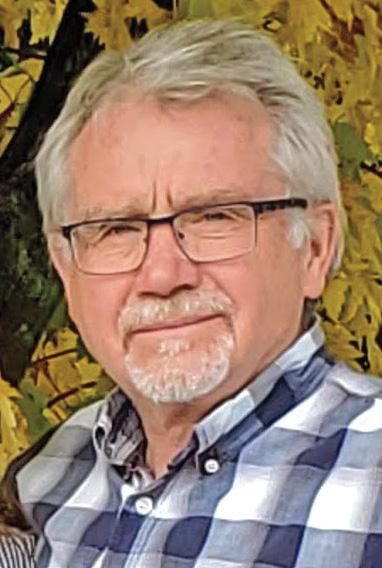
• Enjoy World Cup football (soccer). Too bad the football championship games in Qatar are over now!
When the Word became flesh, our Lord engaged with the culture of his time. And because of the incarnation of the Word into the world, we continue to do the same. We too are sent and become incarnate in the cultures of the world. It was for this reason that the missionary movement has had a unique interest and passion with languages, cultures, and societies (or people groups).
The late Lamin Sanneh, scholar from Ghana, wrote in his ground-breaking work, Translating the Message, “Christianity is remarkable for the relative ease with which it encounters cultures. It renders itself a translatable religion, compatible with all cultures.”
Yes, newcomers are entering the Canadian landscape and engaging with our cultures.
As Christians, we love people as individuals, and part of individuality is the nation or society they come from. And as we enter their worlds, we enlarge our own worlds as well.
Arley Loewen and his wife Janice have lived and worked among the people of Afghanistan since the early 1980s. Arley specializes in PersioAfghan cultures, with an MA from Pakistan (1989) and a PhD from the University of Toronto (2000). The Loewens served in Pakistan for many years and then in Afghanistan for four years with their two teenage daughters. They now live in Blumenort, Man. They minister in Europe and elsewhere, teaching and training Afghan migrant believers with a passion to see Afghan believers become mature disciples and join vibrant communities of Jesus followers.
At the very least, we can respect people from other societies. This means we acknowledge and appreciate their societies and be aware that newcomers have distinct cultures from each other.
 By Doris Penner
By Doris Penner
Canada has always been a multi-cultural nation due to centuries of immigration, but in the last few decades, the flow of people from around the world landing on our shores has increased. Some are refugees, fleeing from oppressive regimes, while others immigrate because they see this country as a land of freedom and opportunity. With the government’s need to strengthen the Canadian economy and more openness to assist refugee settlement, the flow will not likely ebb any time soon.
What does this mean for the church? What does this mean for the EMC? Do we tend to agree with poet William Wordsworth that “the world is too much with us” with an attitude that says, “Enough already—this is completely unsettling our way of life”? Or do we consider the possibility that this is a move of God, who in
his sovereignty is bringing a mission field to our doors?
It seems God is giving Christians an amazing opportunity to reach out and be a blessing to people of every tongue and nation, to have a part in the representation that will someday worship around the throne of God in heaven (Revelation 7:9–10).
It used to be that cross-cultural training was left to missionaries who were moving halfway across the globe to preach the gospel to various tribes and peoples. Today, Canadians only have to go as far as the local grocery store or visit a shopping mall to encounter people of several different races and ethnicities. Every region of Canada has been touched, the urban perhaps more than the rural. Believers are God’s ambassadors whether they cross the world to other countries or simply cross the street.
Many of us feel awkward in attempting to converse with someone who may be wearing a turban or sari and speaking a foreign language. “They probably won’t understand English, and I may offend them with my questions, so I’ll just smile and wave and move on,” we think.
It is natural to feel most comfortable with our “own kind of people.” There is no language barrier, we know how they think, and behaviour and responses are predictable. To step out of our comfort zone takes courage—and a recognition that your neighbour who recently arrived from India or Hong Kong or Ukraine may need a friend to help them navigate a new way of doing things, or perhaps just a dose of love to ease loneliness.
This is how it starts—with friendship and the development of a personal relationship. Love and concern build bridges that open the way for deeper discussions about God, redemption and the afterlife.
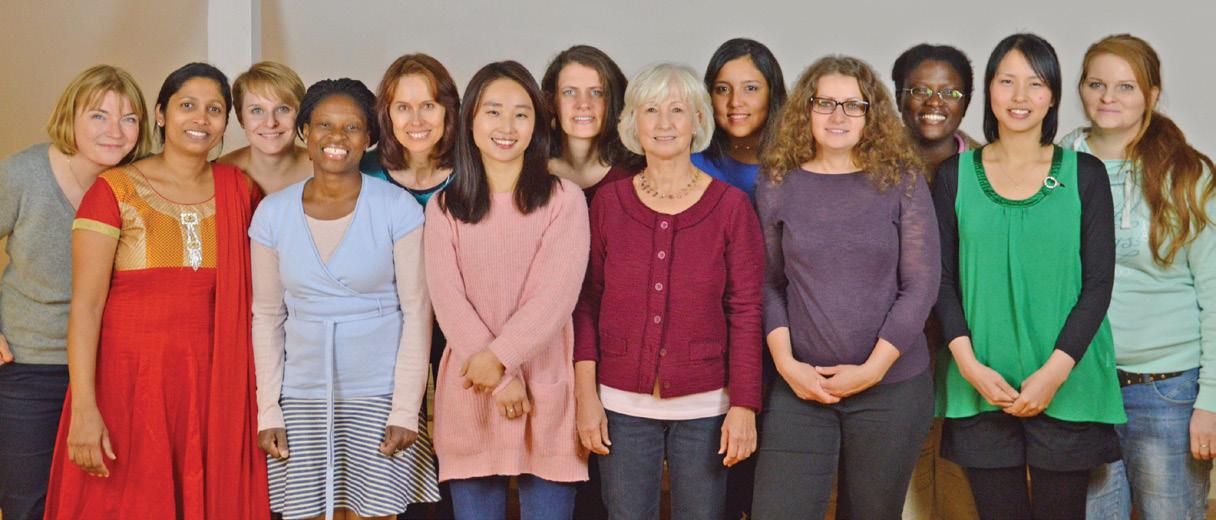
But first, we must embrace diversity as a gift from God. The Creator planned a world bursting with beauty and variety, not only visible in nature but also in the great variety of races, colours and cultures in humankind scattered around the world. There is no race or ethnicity
better than another; to look with disdain on humans of a different culture or language than ours is wrong. All are created in God’s image. However, it is obvious that cultures differ widely. It may be most visible in day-to-day external behaviours—for example, customary dress, what to eat when, greeting friends; the next layer affects values and beliefs which are revealed in situations such as how one handles conflict, how children are trained, and how to address elders. At the deepest level, culture affects worldview—dictating whether we believe in God or many gods, where evil comes from and how it is dealt with, and where people go after death.
Culture is such an integral part of how we live and what we believe that we consider ours to be the norm—it becomes the standard by which other ways of thinking and acting are judged.
As a side note, we need to be cognizant of the fact that while Canadian Mennonites share similar worldviews with other believers growing up in a Mennonite church and conduct their lives according to what is acceptable in Canadian society, each person sees the world through their own unique lens, determined by parental upbringing, various life experiences, what one reads, on what channel we watch world news, what websites are pursued on the Internet, the influence of peers, what is taught in school and the way the pastor interprets Scripture.
We don’t have to look outside of EMC circles to see how individual or church subcultures and belief systems come into play. For example, over the years churches have had very different views on what comes under the label of “worldly” even though we all read the same Bible—jewellery, dancing, short hair for women? A current issue that congregations and individuals have various views on is the role of women in the church. (Editor’s note: see the sidebar by Irma Janzen to see how some of these internal cross-cultural differences can create challenges.)
The first step in beginning a meaningful relationship with an individual from another race and country is the simple awareness
The Creator planned a world bursting with beauty and variety, not only visible in nature but also in the great variety of races, colours and cultures in humankind scattered around the world.
that we are looking at the world with certain lenses by which we judge other ways—different from ours—and many times negatively. We need to be deliberate about setting those lenses aside for the moment and take the time to learn about the cultures of our neighbours that we run into frequently at the post office or encounter at the workplace. We can start conversations and then listen curiously and carefully. It’s a good idea to
research background facts about the cultures for information on codes of behaviour and values that are important.
As we grow comfortable with each other, we may be ready to invite our neighbours into our home or accept an invitation to visit them in theirs. This is a more intimate act, but one that will allow passage into a deeper relationship. Cultural errors that pop up are almost always
1) Take a baby boy born today to farming parents in southern Alberta. Both he and I are Canadians born into farming families who practiced their Christian, even their Mennonite faith, in their communities. Yet there are significant differences in our cultural experiences: age, gender, the beliefs and lifestyles of our parents, the teachings of the church, the digital age and all that comes with it.
Maybe if I visited him as a baby, I could cuddle him and love him and he might respond. However, as the years go by, we would find it very difficult to communicate about important matters because our experiences would have been so different. (It might be possible but that would take a good deal of effort on both our parts.) This is a cross-cultural communication challenge.
2) I had a friend when I was a child. Her dad was my dad’s cousin and we were born within about a month of each other and no more than 10 miles apart. Their family moved to Mexico
when I was about 10 years old. Then they moved to Belize; later, she and her husband moved to the southern U.S. About 25 years ago she was visiting relatives in the Blumenort, Man., area and suggested she would like to meet me. I got the invite and went out to see her. After we had said hello, I asked her about her life, her family, garden, where she lived, and similar questions. When I had no more questions to ask there was silence. I didn’t know what to tell her about myself because I felt it was all a foreign world to her. I left wondering, was this visit worthwhile to her? I did not feel any connection had been made and there has been no further connection. How many cross-cultural hoops would we have needed to jump through to have any kind of meaningful conversation?
3) I have a friend who came to Canada from India to go to university back in the 90s. She attended our church and we connected and eventually
became good friends. She is about 30 years younger than I am. She grew up in a Christian home, spoke English well when she came, was curious and learned lots about Canada, studied hard, and eventually moved to Ontario for job opportunity. She and I shared lots of cultural similarity even though she had grown up in India. I’m not saying there were no issues in cross-cultural communication, but they were minimal.
If we want Indigenous, Ethiopian, Korean, Spanish, Chinese and Arabic churches in our conference we have to take cross-cultural communication seriously so people from other countries feel welcome and included. And I suspect we also need to explore those ideas within our own ethnic background.
Irma Janzen (Fort Garry EMC) has served in education, as the coordinator of Mennonite Central Committee Canada’s Mental Health and Disabilities Program and as a pastor.
overlooked if genuine love and care are shown in initial encounters.
As believers, there is concern about spiritual welfare, but in a way, one must earn the right to tell others about Jesus. When we show interest in their lives, learning about their journey to Canada and what might have instigated their coming to a foreign country and what religion they follow, we may also have the opportunity to talk about our beliefs.
The experience of building bridges to form friendships with other people is not easy, especially if there are significant cultural barriers. It takes time when our lives are already overly busy with family, jobs and church meetings. Some established patterns of what is comfortable and convenient might have to be modified. In addition, this sort of experience may involve an emotional drain. In other words, this will involve sacrifice—which should not be a surprise for believers!
If our ethnic neighbours feel comfortable with our family and look on us as friends, it will seem right and natural to invite them to church. What can EMC churches do to make people from other countries and cultures feel welcome? What can be done to give them the feeling that church is a warm secure place they want to be part of?
Friendly greetings and smiles of welcome are gestures everyone can offer. Filling immediate needs will go a long way in opening peoples’ hearts and minds to the gospel. It’s important to identify needs of new attendees and respond accordingly. Offering English classes in the church or finding out where they are taught is one example. New arrivals will need help in doing paperwork, and finding jobs and rides to doctors, dentists and shopping malls. Some newcomers may be refugees who have fled horrific situations for which counselling might be appropriate. Be patient and compassionate.
The Canadian Church Planting Task Force appointed by the EMC is currently working with Ethiopian, Middle-Eastern, Hispanic and Chinese churches that are reaching out primarily to immigrants of their own backgrounds. For example, EMC is partnering with two Ethiopian churches: Ephrata Evangelical Church in Edmonton and Glory
of Christ Evangelical Church in Toronto, as well as assisting the Arabic-speaking Kingdom Life Church in Winnipeg. This program has the potential to expand as EMC congregations support it with prayer and finances.
It is not feasible to establish an EMC church within each ethnic group in every city and town across the nation. But many of us are in contact with someone who would accept an invitation to attend a service in our church. The message we proclaim from the pulpit never changes—it is the truth of God seeking a relationship through Jesus Christ with all peoples of the earth. God has given us the task of reconciling people to him (2 Corinthians 5:18–20). When newcomers attend a gathering of Christians who are indwelt by the Holy Spirit, who pray and sing and preach, they will sense the presence of God.
We need to keep in mind that much of how we conduct church is tradition, and if changing it up a little bit here and there helps newcomers feel more comfortable, let’s do it. With time, ethnic music could be incorporated, Scripture read in the language of people attending and ethnic foods showcased at a potluck. Remember the Apostle Paul’s words, “I have become all things to all people so that by all possible means, I might save some” (1 Corinthians 9:22).
Doris Penner (BA and MSc, U of M; BRS, Steinbach Bible College) has worked as a teacher, nutritionist and journalist. She has taught in several First Nations communities and done short-term mission/voluntary service in Labrador, Spain, Germany, Haiti, Mali, Zambia, India and Bangladesh. She attends Prairie Rose EMC in Landmark, Man. A worthwhile experience has been walking alongside a family from Nicaragua the church sponsored many years ago. This article was inspired by a conversation Doris had with Irma Janzen.
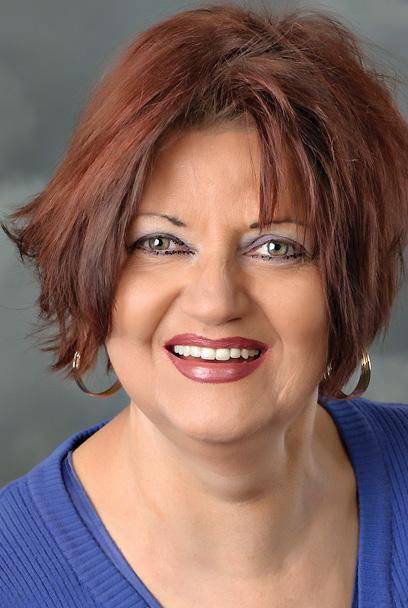
The experience of building bridges to form friendships with other people is not easy. It takes time when our lives are already overly busy.
Churches are beset with a perplexing tribalism
By Terry HiebertEveryone agrees that the church should not major on minors. Churches would mostly agree with the slogan “in essentials, unity; in non-essentials, liberty; in all things, charity.” Yet we find our churches beset with a tribalism that is perplexing, even though Protestants have been through 500 years of church founding and splitting. We may need a deeper understanding of the Scriptures to move past the slogans we find difficult to apply.

Most Christians would declare that what unites the church is Jesus Christ and his salvation. So, the SBC Leadership Conference team asked two biblical scholars and a pastoral leader to engage the Scriptures in answering the question: Could the good news still unite the church today?
Three speakers with diverse tastes in coffee joined me at Steinbach Bible College for a conversation around two questions. What are some
of the key issues creating disunity in the church today? What do you think your perspective will bring to this conversation?
Pierre GilbertPierre grew up in Quebec City. He received a BRE and MA (OT) from Providence College and Seminary and has a doctorate in biblical studies from the University of Montreal. Pierre has served in Montreal and Fresno, California. He currently teaches for Canadian Mennonite University in Winnipeg. His academic interests focus on the Old Testament. He has written two books and is working on a third one dealing with divine violence in the Old Testament. Pierre is married to Monika, and they have three grown children and a grandchild. He drinks McCafé and will speak on Inclusion and Exclusion in the Torah
Key issues: The government’s incoherent and, at times, authoritarian response to the pandemic has created deep and intense divisions in many churches, particularly so in terms of how we understand the relationship between the church and the state. Another source of division ties into the increasing number of leaders and churches that are now embracing the so-called woke ideology without understanding exactly what it is and its implications for their communities and society at large.
My perspective: I have been asked to bring an Old Testament perspective, and I will do my best to examine the foundation for unity for the Israelites who came out of Egypt. The lecture will centre on the heart of the covenant, the Ten Commandments. I will also examine how the notion of unity in the Torah was tied in with the attitude of loyalty towards God that is expressed in Deuteronomy 6:4–5, “Hear, O Israel, the Lord our God, the Lord is one,” and the whole issue of love and loyalty.

Joshua Coutts
Joshua is Associate Professor of New Testament at Providence Theological Seminary and has taught in theological institutions across Canada. His love for both Scripture and the church has directed much of his academic work, and he speaks and preaches frequently in churches, at retreats, and at academic conferences. He and his wife Mary have two sons. He drinks Starbucks and will speak on Relational Identity in John’s Gospel and Christian Unity.
Key issues: The deepest root of my interest in this issue is a love for Jesus. When you love him deeply, it is impossible not to feel sorrow at seeing his name torn apart by his representatives. And sometimes,
Terry Hiebert asked the presenters, “Church leaders are overwhelmed with many responsibilities. So why attend a conference on church unity?”


You need pastors to think carefully about this because Christian unity is not just a question of keeping people together. It is about what we are about, it is about the centre, and it is about the mission of the church.
– PierreI would hope that what will be life-giving to pastors is a clarity on what we are primarily about. There are lots of good things, but there is the one needful thing. And Christian unity is an out come of that.
– JoshuaI hope that that this discussion would inspire them with some good news that we can leverage and take advantage of the brokenness of the present day … I hope that it would help pastors realize that rather than thinking about what we have lost in the last couple of years, what is “threatening” today, we can … see the opportunity that is there, and thus be encouraged and inspired.
– Terry K.the way we disagree with each other can be shameful. At the same time, many bandy about Christianese or Christian language to trumpet their own kingdoms.
My perspective: The antidote then, to idolatry or any giving of myself to a lesser god, is to be realigned with the true God. That would be the perspective I would want to bring: the relentless orientation towards Jesus Christ—that we see across the New Testament, of course, but in John’s Gospel in particular, where he is at the centre of all things.
After a decade in business, and 25-plus years in pastoral and denominational ministry, Terry Kaufman now serves as Leadership Catalyst for the Evangelical Free Church of Canada— resourcing, coaching, mentoring, and consulting with church leaders and pastors across Canada. He also serves as faculty at Steinbach Bible College, overseeing Ministry and Marketplace
Arlene Friesen, professor at Steinbach Bible College in Bible and church ministries, and noncoffee drinker, will host a round-table discussion with the presenters.

believe in the church are probably wrong. We have thought that a mature church might be one that has great teaching or great growth or many programs. But really, a greater sign of maturity is unity.
Discussion: Arlene Friesen
We are inviting Arlene Friesen, professor at Steinbach Bible College in Bible and church ministries, and non-coffee drinker, to host a round-table discussion with the presenters. The panel will explore the broader polarization in the church and suggest how leaders can respond. This time is an opportunity for further questions, next steps, and application of the presentations.
Leadership as well as teaching pastoral courses. Terry and his wife Peggy have two grown children and a grandchild. He drinks Tim Hortons and will speak on Church Unity in a Polarized World.
Key issues: One is simply a lack of trust of other people, especially leadership. That is huge and is a real issue contributing to disunity. Connected to that is an individualism, a self-determination: “I get to decide who I am in terms of all aspects of my identity. Even as a Christian, I get to decide what my Christianity should look like and what it should emphasize, and nobody gets to tell me otherwise. And I get to make all these decisions myself.”
My perspective: I would like to emphasize the priority of unity. We can find this in many ways in the Bible, but I think one of the expressions is how maturity and unity are connected. The pictures of maturity that we have come to
The conversation on a cold afternoon in October revealed that although the three speakers are from different institutions and drink different coffees, there was remarkable unity. Pierre Gilbert, Joshua Coutts and Terry Kaufman all affirmed the centrality of Jesus Christ and believed that the good news could still unite the church today. Join the SBC Leadership Conference live or online on March 17–18, 2023, to find out why and how.
Terry Hiebert, PhD, is interim president at Steinbach Bible College.

Although the three speakers are from different institutions and drink different coffees, there was remarkable unity.
 By Phil Hamm
By Phil Hamm
Ministry leaders had a wonderful opportunity to refresh their souls during the ministerial retreat at Wilderness Edge Resort and Conference Centre in Pinawa, Man., November 26–28, 2022.

Retreat organizers Scott and Debbie Dick (Ste. Agathe, Man.) and Michael and Katrina Vanderzwaag (Mennville, Man.) led us in icebreakers and recreation activities. They did a fantastic job arranging “friendly” ping pong, pool and curling competitions. After the meals and evening worship service, many people sat around and enjoyed getting caught up with other ministry leaders and sharing personal challenges. We connected as we shared and prayed together around great food.
In preparation for the retreat, those coming were asked to share a book that had impacted them in the last year. Throughout the retreat, ten names were drawn from a hat and those individuals received a book that someone had recommended. Happy reading!
The theme Singing God’s Story was developed through singing together led by Mo Friesen, EMC’s new Director of Next
Generation, and Janine Parkinson (Rosenort EMC)— which was a great way to provide uplifting therapy. Speaker Patrick Friesen explored four themes: Singing Creation’s Praise, Singing the World’s Pain, Singing Salvation’s Victory, and Singing Eternity’s Hope.
We began Saturday evening by Singing Creation’s Praise. Our spirits were lifted by the lyrics and the heavenly harmonies. We were encouraged to reflect on the wonders of creation and the grandeur of our Creator. We live in such a diverse creation showing God’s creativity.
Patrick’s passion is photography, but our eyes see more than a camera lens. However, a camera can create a composition displaying the wonderful detail God used to create the world. In our worship we should not only focus on the present but on eternity—past, present and future. God has given us creativity to innovate and create new expressions of worship.
Sunday morning the theme of Singing the World’s Pain was our focus. Janine shared several of her compositions on lament. The psalms are full of lament. One example is Psalm 22. We were encouraged to take a psalm and pray through the psalm while personalizing it.
One of our EMC associate missionaries, Elvira Cote, who is focused on ministry among Indigenous People in Canada, shared some of the pain that she has endured even from her own people as she seeks to share Christ. Many in that community have seen abuse and much pain but the key is to forgive those who did harm. When you forgive, you receive peace from God.

Patrick shared that lament is a cry to God because we know that God will work in response to our cries just like parents care for their children when they cry out in
Speaker Patrick Friesen describes how, as we live in the world, we anticipate the glory of heaven without neglecting our current community on earth.

pain. What we practice in the good times is our strength in the bad times. We are to fill our minds with God’s love and care. As the song “Does Jesus Care?” says, “Yes, he cares.” Where is the pain in our community? We need to see the world’s pain because life is not pain free. Lament is not our final prayer. We can finish our intercession with a hallelujah.
Sunday evening the theme was Singing Salvation’s Story. We need to keep our focus on Christ, his death and resurrection. Our worship services can become rituals and rituals form habits that we become comfortable with. When rituals lose their purpose or meaning, we begin to practice superstition. We need to understand what we are doing and why we do it. When we make choices for worship, we need to do it with intent. The songs that are chosen need to tell the story of God. After a message the music needs to solidify the commitment that people make in response to the message. As people go back into the world, they need to act out the commitment that they have made.
Monday the focus was on Singing Eternity’s Hope. We sang a “fourth stanza medley of songs” which expressed our hope of heaven. Many of our songs have a message of hope and eternity in the last verse of the song. Our salvation is not just future but it is past, present and future. We live in the world but we anticipate the glory of heaven. We should not, however, neglect our current community here on earth. We closed our times of worship with communion lead by our new Conference Pastor Andy Woodworth.
The retreat is one of the best ways to get to know others in the leadership and continues to be a fantastic way that newer pastors can get to know and establish a relationship with others in the Conference. Also, it is a great way to rejuvenate our spirits before the busy Christmas season. Thanks to all who organized this uplifting, valuable experience.
Phil Hamm is chair of the EMC Board of Missions and a minister at Leamington (Ont.) EMC.
Conference Council members met virtually and in person at Braeside EMC in Winnipeg on November 26, 2022. Braeside pastor Dan Cormie opened the meeting by reminding members that Jesus is described in John 1:14 as being full of grace and truth. When we err on either side, we’re going on “adventures in missing the point.”
The General Board reported that the EMC Festival 2023 will take place June 2–4 in Rosenort, Man. (Region 6 hosting).
The EMC Indigenous Ministry Committee has made some recommendations. Churches are encouraged to “tell [the committee] your stories of what you are doing and what you have been doing.”
“On a more sombre note,” Moderator Abe Bergen then read a letter from Aberdeen EMC requesting release from membership in the EMC. Bergen responded to meeting attendees from Aberdeen, “We’re sorry to see you go, but as you go, we want to bless you and trust that you will find resonance and meaningful relationships within MC Manitoba and … meaningful ministry in that context.” Council members passed the motion to release Aberdeen from EMC membership. Bergen prayed a blessing over Aberdeen.
Vice-Moderator Darren Plett gave an overview of staffing changes within the EMC national office. Five of six director positions have recently undergone transition. Erica Fehr began as Director of Communications and Administration in January, Mo Friesen was hired as Director of Next Generation (a new position) and Andy Woodworth as Conference Pastor; both will begin in January 2023. Emery Plett will begin as Executive Director in July 2023. Rolf
Kruse served several months as interim Director of Global Outreach; the Personnel Committee is recruiting for a permanent DGO.

Abe Bergen introduced proposed constitutional changes to the ministerial definition. At the June 2022 Council meeting, two options were presented but delegates preferred a hybrid of the two. The current recommendation reflects that third option. Under this proposal, “when a decision will establish EMC theology or morality, the decision reached by discussion will be ratified by a vote of credentialed ministers. Congregations that do not have any credentialed ministers may delegate one representative to vote.”
The document also seeks to clarify the process of commissioning, credentialing and ordination of church leaders. In summary, the church commissions a leader, the Conference (through the Board of Leadership and Outreach) credentials a leader, and the Conference and the church together ordains a leader.
Discussion included:
• A question about what the quorum is—this is not currently defined.
• What is the difference between credentialing and ordination? Credentialing means a person can participate in the decision-making of the Conference Ministerial at all levels. Ordination is an office by which a congregation sets a person aside for life-long ministry.
• A recommendation was made to remove the sentence requiring Ministerial to affirm the appointment of the Conference Pastor, and instead, stipulate that the Personnel Committee involve Ministerial members in the search process.
• Aren’t we redefining what a minister is? That would make this a theological decision that should be handled by the Ministerial rather than Council. This document is to determine how various church leaders will make decisions together at the Conference level.
• How do we deal with the fact that some (likely larger) churches will have more influence over Ministerial decisions? Yes, some churches will have more influence because they have more credentialed leaders. But the alternative is that some churches, like those in pastoral transition, wouldn’t have a vote. This is not okay—each church needs a voice.
With the amendment to remove the point on the Ministerial affirmation for the Conference Pastor, the document was motioned, seconded and tabled.
BOT Vice-Chair Andrew Kampen noted that the yearto-date shortfall is just under $34,000 as of November 22, 2022. They anticipate that 2022 will be a surplus year. The BOT is implementing a budget reserve policy to deal with how EMC handles both surplus and shortfall. After hearing an overview of the budget, delegates voted to approve EMC’s 1.8M budget for 2023.
BOM Chair Phil Hamm encouraged delegates to download the PrayerMate app to pray for our missionaries.
Joanne Martens described her experience on a prayer team to Paraguay, saying they were “welcome and well-fed wherever [they] went.”
Calvin Tiessen, EMC associate missionary in Albania, said missionaries from Guatemala are receiving training to serve in the Middle East. Albania, an atheist country with a Muslim background, provides a strategic location for training. While the history of Western Christianity’s atrocities
General Board: How do you think your church can respond to this challenge [the need for recruitment]?
in the name of Christ is a barrier to ministry among Muslims, missionaries from other parts of the world are finding open doors.
Outgoing BLO Chair Andy Woodworth reported that the BLO is updating the pastor salary guidelines and is working on a pastoral ethics covenant, which it hopes to release in spring 2023.
Peter Doerksen described his new role as EMC Western Ambassador. He will serve quarter-time as a goodwill ambassador for EMC churches in Regions 1 and 2.
CPTF Chair Glenn Plett reminded delegates that, at their June 2022 meeting, one-third of them gave an enthusiastic “yes” to planting ten churches by 2030, another third gave a more
Board of Church Ministries: EMC supports Inter-Mennonite Chaplaincy Association for the benefit of our students at U of M. What are your thoughts?
Board of Leadership and Outreach: What resources do you feel your church needs going into 2023 to be more effective in ministry?
42% We are already engaged in leadership development but would like to do more
36% It is already difficult for our church to find volunteers
18% We would like to be more intentional with sending workers— please help
4% We have sent enough workers from our church already
36% This is a very localized ministry; why are we supporting it as a national conference?
36% This is a great ministry. Are there similar ministries in other universities we can support?
20% I’m not familiar with IMCA. I want to know more so I can direct my students there.
8% This is a good concept, but I have some concerns about the program.
62% Assistance in developing leaders in your church
27% A means to measure congregational engagement
8% Assistance to help your church board function more effectively
3% Giving direction to your church board about archival material (what to keep and how long)
reserved “yes,” and the final third said we should aim for five. Nobody said “we should just maintain what we have.”
Abe Penner, church planter at Gospel Light Fellowship in Redcliff, Alta., said planting a church in Bow Island meant they lost leaders and members. Gospel Light is trying to find their place in the community and what forward looks like; there are many needs in the church. He encouraged delegates to ask themselves how they can help.
Vice-Moderator Darren Plett hosted this quiz game to help delegates get to know some of EMC’s new staff members. “Fun facts” presented included:
Emery Plett, Executive Director
• He’s had three knee surgeries
• He likes the number nine—birthday, month and year all have a nine
• He lived overseas two times for a year each time
BCM Chair Sarah Barkman said the BCM’s focus seems to be a “set of random puzzle pieces.” They oversee the EMC archives, children’s ministry, the National Youth Committee and publish The Messenger and Growing Together.
Jordan Doerksen reported remotely for the National Youth Committee. The NYC is planning Abundant Springs to be held May 19–22, 2023. The committee is excited about what the Director Next Generation appointment means for youth ministry in the EMC.
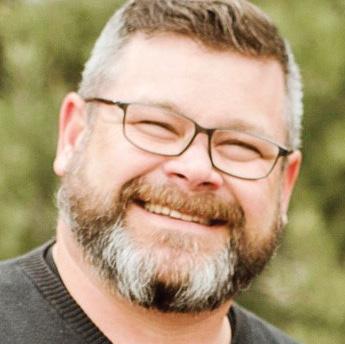
Delegates viewed a promotional video for EMC’s new podcast, The Armchair Anabaptist, hosted by Kevin Wiebe and Jesse Penner. The podcast’s first season will focus on loving our enemies and will begin releasing in January 2023. More information can be found at www. thearmchairanabaptist.ca .

Mo Friesen, Director Next Generation
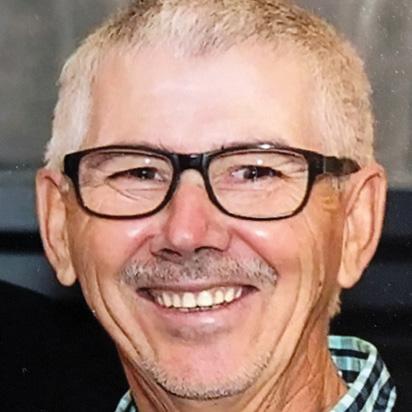


• He spoke Spanish before he spoke English
• He has built his own guitar
• He won first place in a lip-sync competition in high school
“Because of COVID,” said EMC Director of Communications and Administration Erica Fehr, “we never held a book launch” for the EMC history book Circling the Globe by Doris Penner. Penner then read an excerpt of the book. Copies can be purchased online at www.emconference. ca/store.
Moderator Abe Bergen thanked delegates “for your interest—your participation” saying he trusted the meeting has been valuable. He asked delegates to share meeting highlights with their churches. Vice-Moderator Darren Plett closed in prayer.
Peter Doerksen, Western Ambassador
• He has flown and landed a small plane
• He took dancing lessons
• He played the role of “Mr. Mom” while his wife went to work. Their youngest was 17 months old at the time
Andy Woodworth, Conference Pastor
• He took a hiatus from pastoral work to train and work as an air traffic controller
• He won a Dodge Nitro through a free draw by Dodge Canada at a car show
• He once performed a wedding live on a local radio station
– Rebecca Roman, EditorAt a concert in the city of Cloppenburg, Germany, some years ago, I was talking about the miracles that Jesus performed. What I wanted to say was, “Jesus performed many powerful miracles. He even fed 5,000 people at one time.” The German word for “fed” is very, very close to another related word. What I actually said was, “Jesus did great miracles. He even ate 5,000 people at once.” At the time, I had no idea why suddenly the audience burst into laughter!
–
Danny PlettOn December 24th, I arrived at a home at 11:50 pm. Upon arriving, I shook everyone’s hand as I greeted them with a “Merry Christmas.” One lady commented tongue in cheek, “Is it 12 o’clock yet?”

Ten minutes later, everyone greeted each other with a hug and a “Merry Christmas!” I was ten minutes too early with my greeting!
– Travis ZachariasEven though we are missionaries in Mexico, I am Mexican. So, my cultural faux pas was actually in Canada. As Latin Americans, we greet with a loose hug and an “air kiss” just touching the right cheek. When Canadian friends tried to go along with the Latin American way of greeting, they hugged me soo tight and kissed me on the cheek. It was very awkward trying to get some space and pull back a little. It was then that I became more empathetic when my Canadian friends try to keep their space.
– Blanca InfantesAn ‘alarming’ experience

I had just started grade 8 in Canada. I didn’t know anyone yet, and the way they did things in school was completely new to me. We were all sitting in the library, silently reading our books, when the alarm system went off. Fear shot through my whole body as I had never experienced something like that. I just followed the crowd in a slight silent panic, thinking of all the possible reasons why the alarm was going off. The strangest thing to me was how calm everyone else was.
When we got outside, I mustered up the courage to ask someone what had happened. “Oh, just a fire drill.” At the moment, it was terrifying for me; afterwards, it was quite hilarious. The only reference I had to fire alarms was from movies. I was just thinking about our “alarm” in our private school in Tres Palmas, Paraguay. Just a bell with a little string you had to pull.
– Daniela KroekerI had been in Chihuahua city, Mexico, for about six months and was making good progress on my Spanish language acquisition. Though I was making lots of mistakes, most of the time the people were very gracious, often correcting me with hardly a shrug of the shoulders.
However, one mistake that I kept repeating elicited smiles and laughter, even though I thought I was pronouncing the words correctly. Finally, my dear friend Aldo clarified that while I had been trying to say ground beef, or cow meat (Carne de Res), I had been saying ground king or king meat (Carne de Rey). I don’t advocate for cannibalism, but that’s how it was coming across. I’ve never forgotten how to pronounce that correctly since then.
– Gerald Reimer
During the Advent season, we have been reminded of the longing of Israel for their Messiah, the one who they thought would save them from their suffering and from their Roman oppressors.
This longing is tangible in East Africa especially among the South Sudanese refugees, as they long for an end to the suffering and their return to a country of peace. We remember that his kingdom has come to us but is not of this world (John 18:36). While we wait for his return, we long for his peace and righteousness and seek to live it out here on earth.
When we left East Africa in 2019, we did not realize it would be three-and-a-half years before returning to this region. COVID-19, war and two high school graduations all delayed our return.
After an encouraging September visiting EMC missionaries in Paraguay and Bolivia, we began to prepare to travel back to East Africa. At the beginning of October, it became clear that returning to the Gumuz area would not be possible due to ongoing political unrest. The Gumuz people we lived with remain scattered in the forested mountains. So, instead, we returned to the small city of Arua in Northern Uganda, a region that hosts South Sudanese refugees, has a large Muslim population, and is surrounded by villages where Christianity has not taken root.
We have rejoined a small Pioneer team that we served with in 2019. What a joyful reunion we experienced on our arrival: Ugandan staff who welcomed us to our small, rented home, Sudanese sisters who have taught the Word and cared for widows and orphans in our absence, and weary teammates who have endured lockdowns, accidents, the murder of a Ugandan colleague, illness, theft and discouragement. Our purpose in returning to this location is to encourage, share the Word and serve those around us.
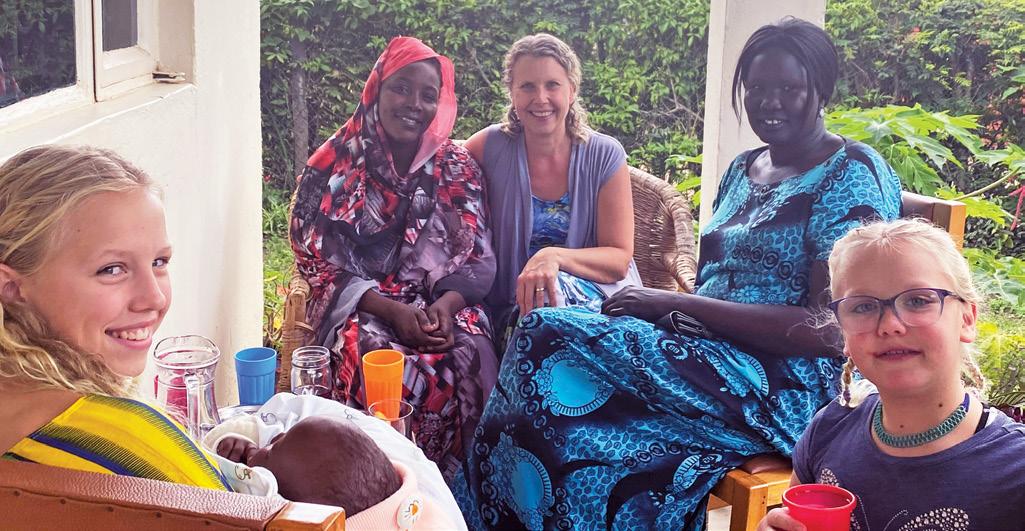
Our three daughters, who have grown from young children to teens, made the transition back to Arua seamlessly. They have been able to dive into serving missionary kids through teaching preschool, swimming lessons, and offering childcare. They have renewed old friendships and made some new ones. Ariana and Nadia have joined a small youth group led by an AIM AIR pilot and his wife, and Sonia has reunited with her kindred friend, who now lives next door.
Rolf has opportunities to regularly share the Word with shopkeepers, preach on Sundays and teach in fellowships and villages where there is a need. I am supporting the girls’ education, offering consultation to several outreach projects, teaching the Word several times a week, and teaching swimming lessons with Ariana to ex-pat families on Fridays.
The opportunities to encourage, love and teach are endless. Our hope and prayer is that we can holistically share that Christ understands our pain, our fears, and our longings and his Word points us to the hope of his kingdom; a kingdom that gives us hope and peace even in impossible circumstances.
“May the God of hope fill you with all joy and peace as you trust in him, so that you may overflow with hope by the power of the Holy Spirit” (Romans 15:13).
– Angela KruseAngela and Rolf Kruse are currently serving in northern Uganda with SIM and partnering with Pioneers. Outreach to Sudanese refugees and local communities, missionary and TCK care, and providing support where needed are all part of their roles.
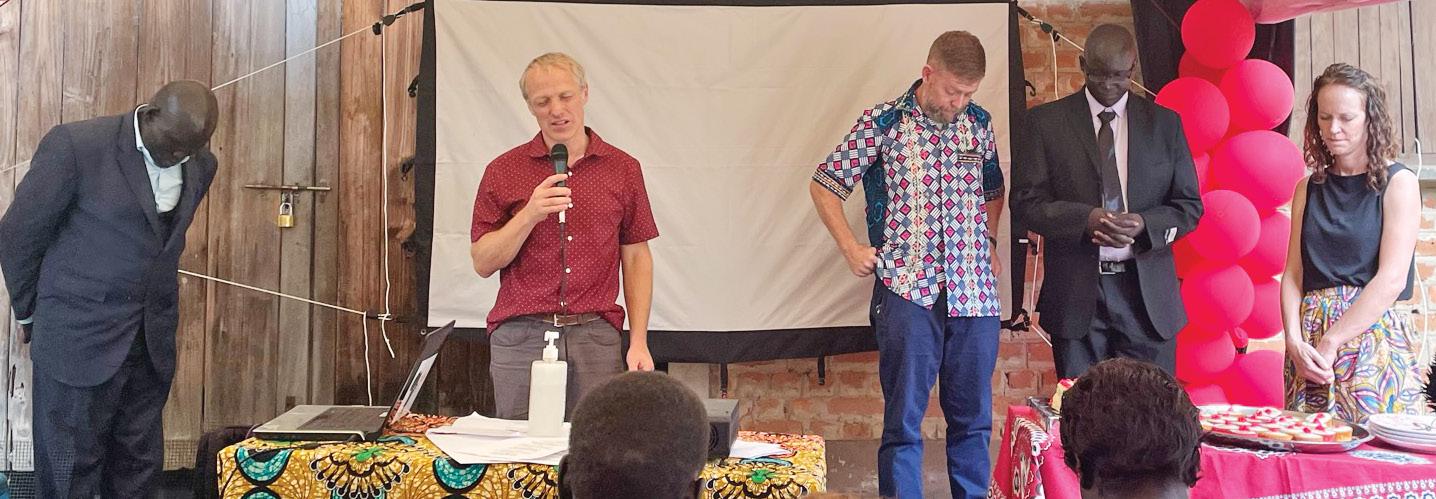

In spite of obstacles, the 11th Polar Bear Marathon, held on November 19, 2022, was completed—to God’s glory!
Nine of us were to fly together to Churchill for the marathon. Travel became more interesting as our pilot was watching a blizzard that was raging in Churchill. Calm Air flights to Churchill were cancelled, but our pilot was watching for a “window” in the storm and decided it was safe to fly.
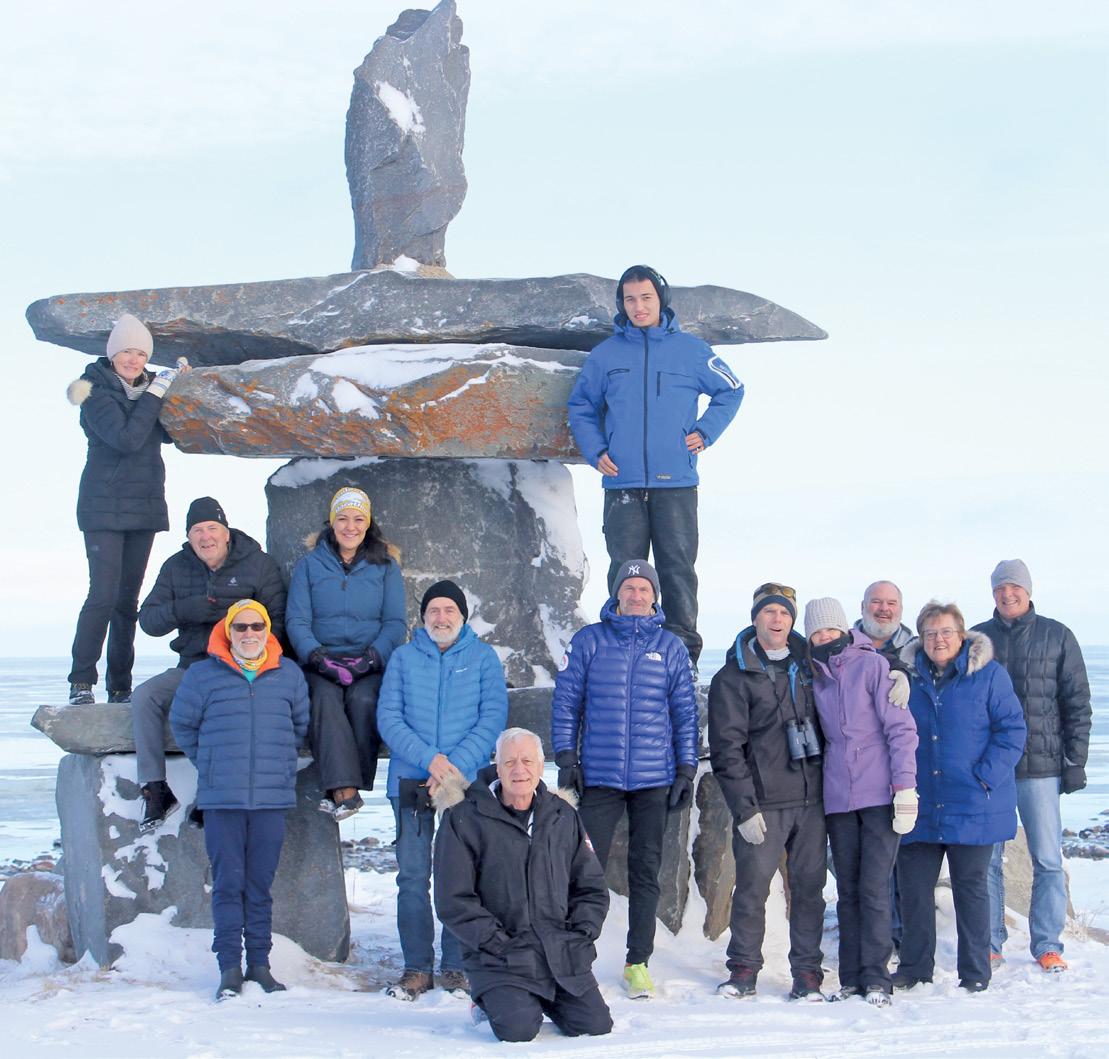
After a two-and-a-half-hour delay in the schedule, our pilot gave us a great flight with a very smooth landing in Churchill right into the storm. Our pilot’s name? Stormy.
We have been working on a coffee table book for the tenth anniversary of the Polar Bear Marathon. In spite of a delay, we were able to take delivery of the book a day before we left for Churchill!
Six international runners had been stuck in Winnipeg on Friday due to Calm Air’s flight cancellation. However, they got on the first flight on Saturday morning, so we were able to postpone the start of the run from 8 am to noon. The weather was beautiful and the scenery spectacular after the storm and everyone finished the run.
We were blessed to see a bear with two cubs the day after the run. They were walking on the Churchill River near the Prince of Wales Fort. We also encountered a beautiful red fox who came right to our vehicle, and then watched a silver fox as it was meandering right along the side of the road.
Our awards dinner was a wonderful event. Joanne Stover from the Duke of Marlborough School brought 19 children from the Northern Lights choir to bless our banquet with three songs. Harold Cooper (Athletes in Action) was our speaker, and he had a fantastic presentation.
Harold had come up to the PBM a few times to help for previous events. In the last two years he decided to make a lifestyle change and began running. This year he came as a runner and completed the 10 km distance.
Through the generosity of a sponsor, we were able to forward the proceeds of the book sales to a children’s charity in Churchill, namely the breakfast club (food program) of the school in Churchill.
Sometimes the challenges and stress we encounter feels like the evil one wants to destroy everything, but the Lord blessed us mightily, above and beyond anything we could imagine. As a clerk at Costco reminded me just a few weeks ago, “Greater is he that is in you, than he that is in the world” (1 John 4:4 KJV).
Thank you for your prayers.
– Albert MartensKLEEFELD, Man.—In March 2021, Kleefeld EMC held parent-child dedications for six couples over two Sundays: Lyndol and Coralie Fast with Spencer, Doug and Torie Priest with Thatcher, Colton and Carlee Froese with Lark, and Valerian and Dorothea Bergen with Kaitlyn participated on March 14, 2021. And Silas and Chantelle Bohren with Dawson, and Will and Caycie Rogalsky with Juliet participated on March 21, 2021.
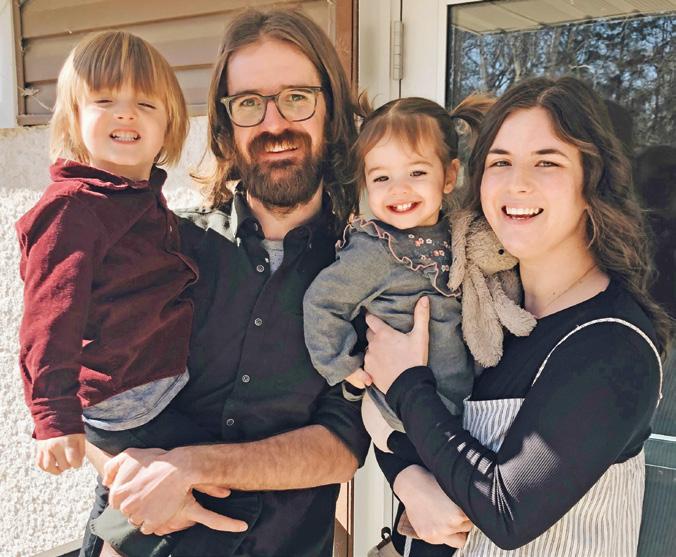
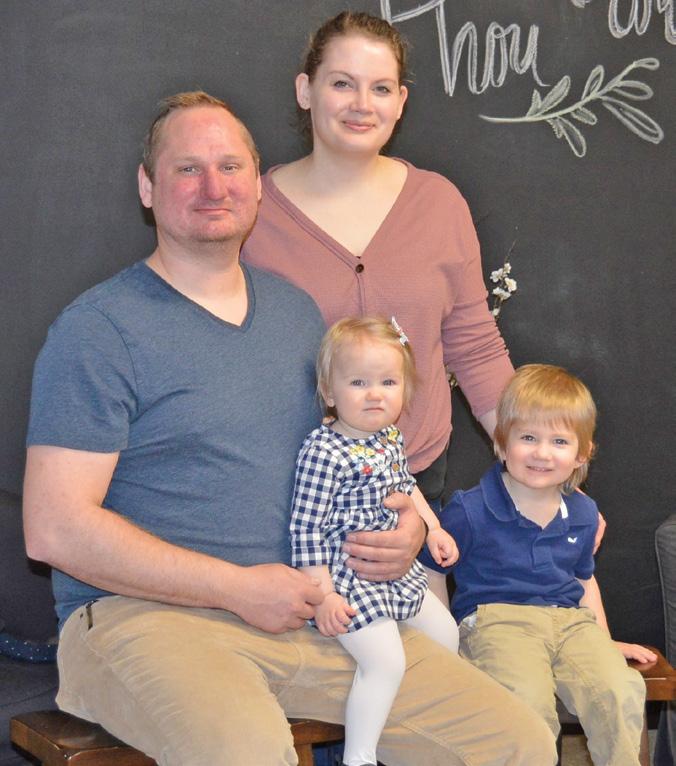
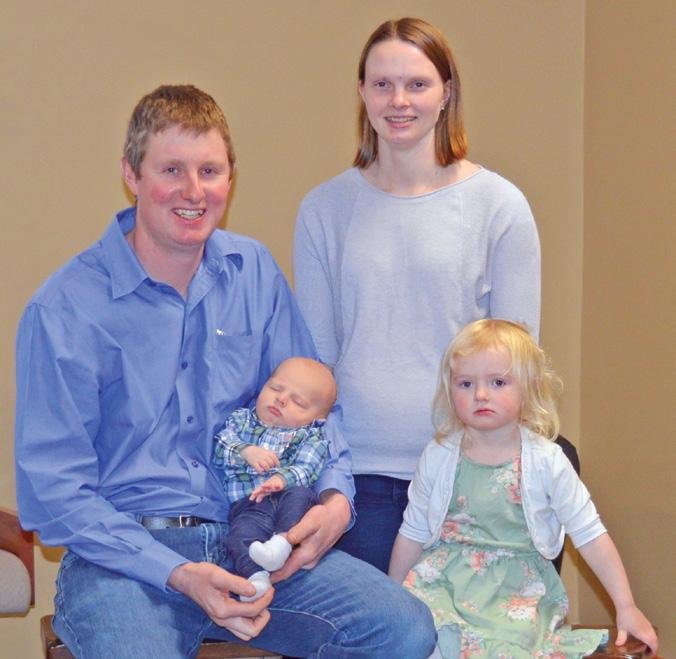
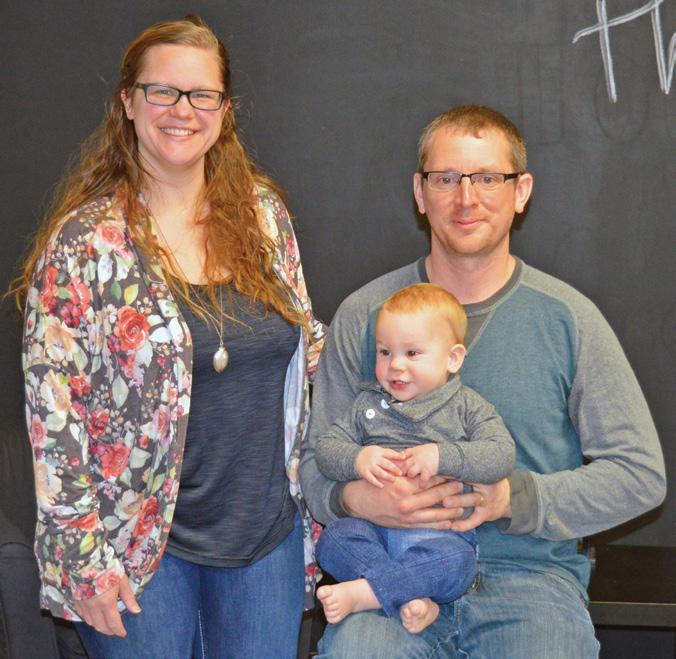
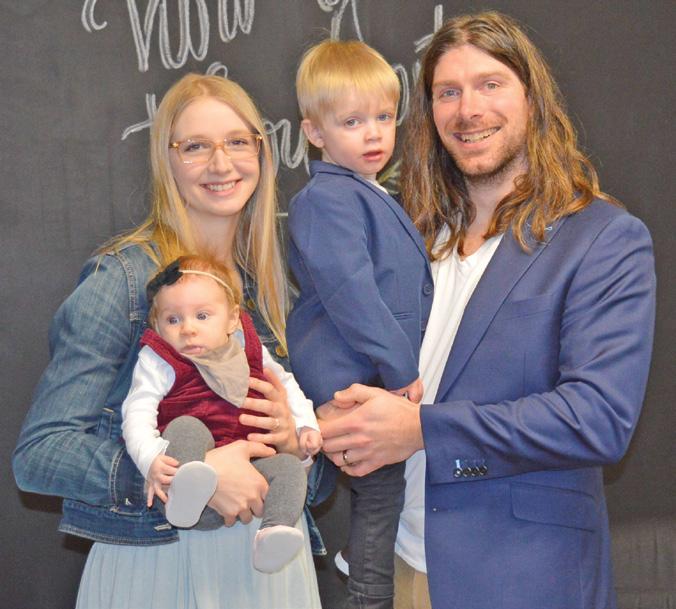
MARCH 3–5, 2023

RED ROCK BIBLE CAMP
$115 PER PERSON
REGISTER BY FEBRUARY 16 through your pastor or young adult leader
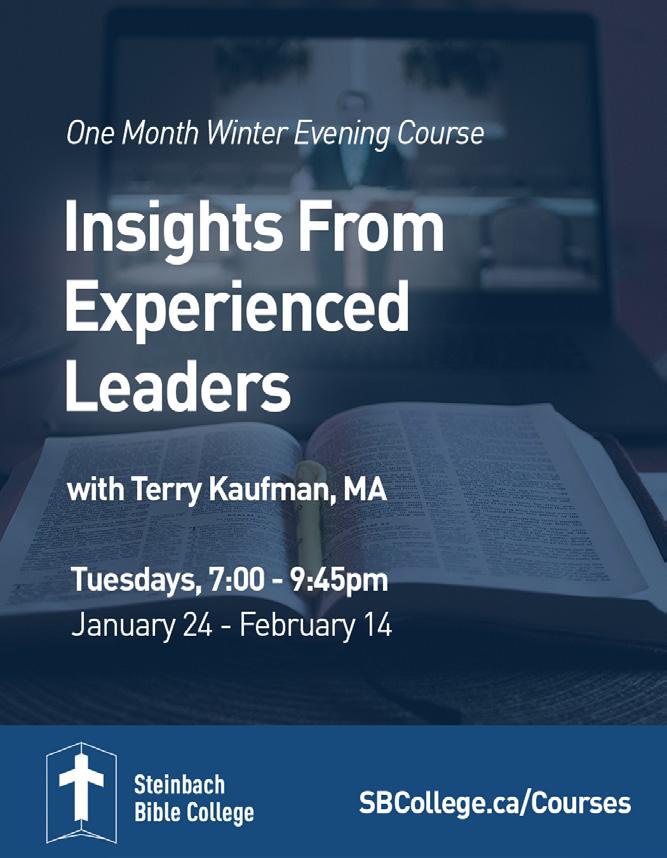
WINNIPEG, Man.—After two years of online learning during the COVID-19 pandemic, Andrew Enns is finally experiencing in-person learning on the University of Manitoba campus.
Enns, a third-year student in the agriculture program, is now making new friends and reconnecting with former friends and acquaintances at Menno Office.
Menno Office, a U of M campus ministry supported by Inter-Mennonite Chaplaincy Association (IMCA), is a place where students find peer support, guidance and pastoral care in a welcoming Christian atmosphere.
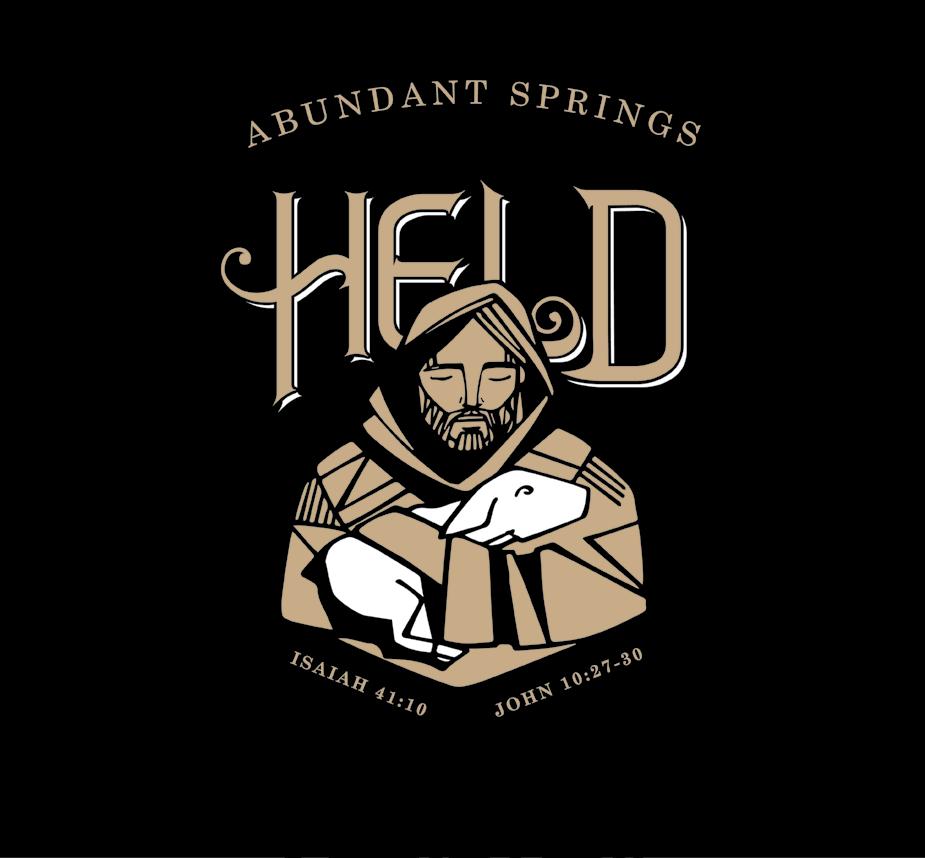
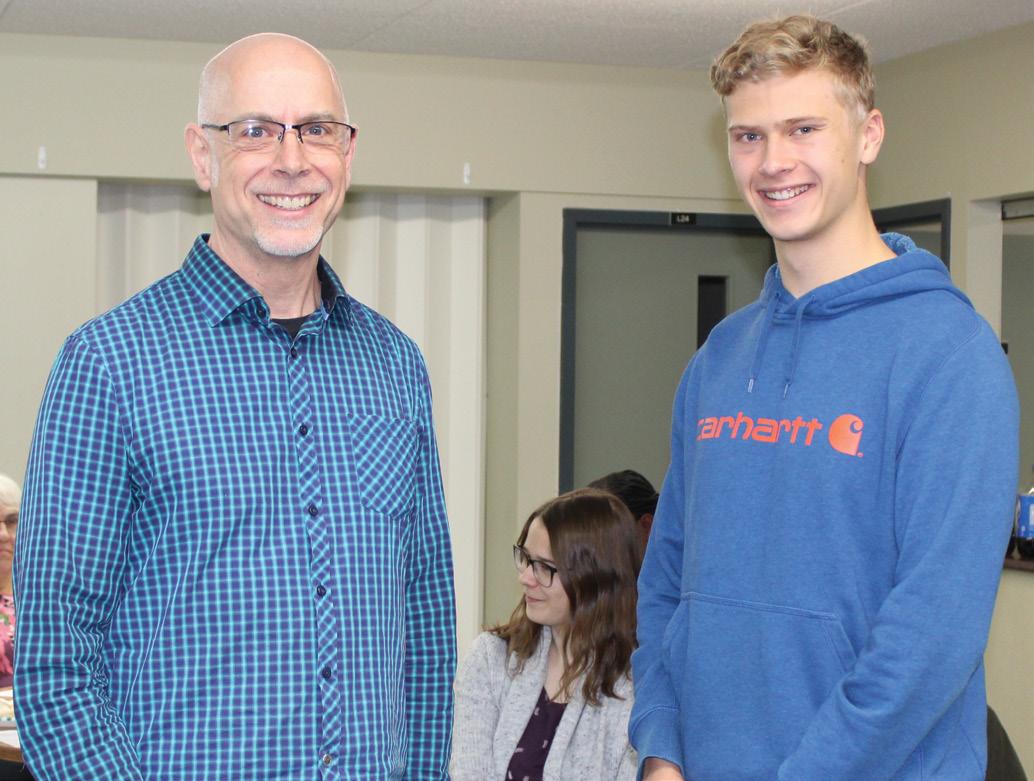
“What I really like is the community life, it is a community I feel part of,” Enns said at IMCA’s annual meeting November 23, 2022.
conferences—EMMC, EMC and Mennonite Church Manitoba.
Mark your calendars for a Valentine theme fund-raising coffee house that will take place in the Fort Garry Mennonite Fellowship Church, 150 Bayridge Ave, Winnipeg, February 4, 7 p.m. to 9 p.m. Highlights include musical groups and a charcuterie hosted by Doris Penner’s catering services from Landmark, Man.
To learn more about Menno Office please visit our website mennooffice.ca .
Pre-COVID, Menno Office and other campus ministries operated out of a space on the lower level of the University Centre. During the pandemic restrictions, Chaplain Mark von Kampen connected with Enns and other students virtually through the E-Menno Office and other online platforms. One of the structured activities that continued during the health restrictions was “Menno Talk”, a weekly faith-based discussion addressing everyday topics of interests and concerns to the students.
When in-person classes resumed in the spring of 2022, Menno Office and other campus ministries set up their offices on the fifth floor of the University Centre. Menno Office is in room 524, a room that has a large window and is more spacious than the room previously assigned to Menno Office on the lower level of the University Centre.
“I love the space—it is a very open space, a welcoming space,” said Enns.
In his report at the AGM meeting von Kampen said Menno Office draws local students as well as those from as far as Asia, Africa and Latin America.
“It is with great joy and gratitude that we are once again gathering in person,” said von Kampen. “As was the case before the restrictions, much of what takes place in the office is unstructured. Even during the unstructured times, faith-based conversations or singing happen spontaneously in the office.”
IMCA is supported by Menno Office alumni, individuals, church congregations and three Mennonite church
“I love the space—it is a very open space, a welcoming space,” said Enns.May 19–22, 2023
STEINBACH, Man.— The Armchair Anabaptist is a brand-new podcast that looks at theological issues from a uniquely Anabaptist perspective.
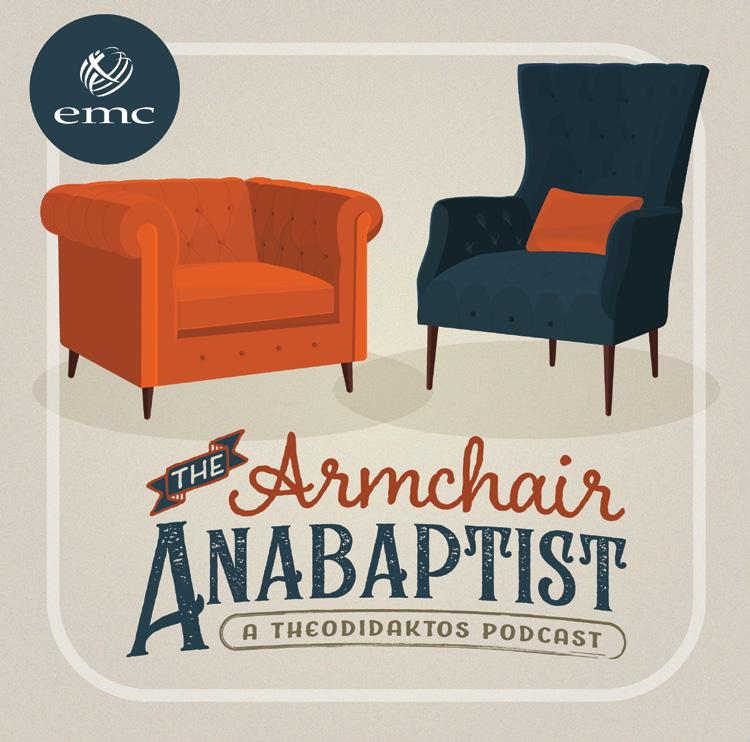
Kevin and Jesse are both pastors in the EMC and they’re inviting us to come along with them as they wrestle, wonder and laugh their way through key issues in Anabaptist theology.
They don’t consider themselves experts, but they are highly curious and enjoy asking good questions.
And more than debating abstract issues, their goal is to take these ideas and honestly and pastorally wrestle with them to understand how we can apply these things, not just in theological circles, but in our day-to-day lives.
For the first season, they are looking at the call of Jesus to love our enemies. From geopolitical strife to difficult relationships in our families and communities, Anabaptists have consistently believed in Jesus’ teachings of loving those who have wronged us.
Kevin and Jesse have an amazing lineup of guests for this season, from world renowned authors, like Greg Boyd and Brian Zahn, to leaders and pastors within our own Anabaptist church conference.
Episode One dropped January 10, 2023! Subscribe on iTunes and Spotify and wherever podcasts are found.
You can also check out the podcast online at www. thearmchairanabaptist.ca.
WINNIPEG, Man.—Mennonite Central Committee (MCC) Canada is pleased to announce that it will relocate its national office to 330 St. Mary Avenue, Winnipeg, Manitoba. The move is planned for spring 2023, following renovations to the space on the 9th floor which MCC Canada will lease.
“With large windows on three sides, we anticipate a bright, inviting place for both staff and visitors,” says executive director Rick Cober Bauman. “And with the building’s environmental designation, we can better meet our commitment to care for God’s creation.”
The office tower recently won the BOMA Manitoba Earth Award for its environmentally friendly and efficient operation, including energy management, indoor air quality, recycling, reduction and re-use, tenant awareness programs and health and safety. The building is accessible through an indoor skywalk that easily connects it with public transit, hotels and restaurants, providing a convenient location for staff and visitors from around the globe.
staff the flexibility to blend remote and in-office work.
“Although we will no longer share office space with our colleagues from MCC Manitoba, we won’t be far from each other,” says Cober Bauman. “We bless MCC Manitoba as they serve and connect with community members at their new location in Winnipeg’s Exchange District. MCC Canada is grateful that we’ve found a site that meets our unique needs. And we look forward to welcoming visitors very soon.”
MCC Canada and MCC Manitoba jointly owned the property at 134 Plaza Drive in Winnipeg. It was sold in spring 2022. Both entities have been working on relocation plans since that time.
– Laura Kalmar, MCCWith a smaller footprint than MCC Canada’s current office at 134 Plaza Drive, the new downtown location will also better accommodate a hybrid work model, allowing Office tower at 330 St. Mary Ave.

OTTAWA—The Evangelical Fellowship of Canada (EFC) is encouraging Canadian Christians to interact with their Members of Parliament to share their concerns and grave misgivings about the planned expansion of medical assistance in dying in Canada.
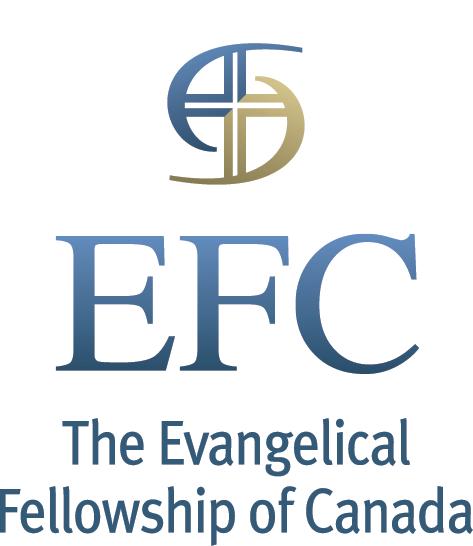
As of March 2023, people with mental illness alone will become eligible for assisted dying in Canada. [NOTE: On Dec. 16 the justice minister announced he will introduce a bill after the Christmas break to delay the expansion from taking effect sometime later than the March 2023 deadline.] Along with many others who have spoken out, the EFC is gravely concerned about the impact of this change on vulnerable Canadians. As an organization that speaks regularly in the public square, we have consistently communicated our deep disagreement with this expansion, and concern over how it will impact people with mental health concerns and those who love them.
feel they have no other options.
The EFC asks Canadian Christians to engage actively in this issue in the coming days and weeks.
“There is time now for one final push to reach our Members of Parliament with our concerns,” says Beazley. “If nothing happens, this change will take effect. We need to ask our MPs to stop the expansion of MAiD to Canadians with mental illness alone.”
The EFC encourages Christians and any Canadian concerned with this expansion to:
• Contact your MP and express your concerns. Ask your MP to stop this harmful expansion. Find your MP’s contact information at ourcommons.ca/ members/en
• Download the EFC’s Action Kit on MAiD for Mental Illness for tips on interacting even more effectively. Share your concerns and the action kit with a friend or family member so they can contact their MP, too. Find the kit at www.TheEFC.ca/ MAIDActionKit
• Pray for our fellow Canadians who are vulnerable to MaiD, that they would know they are not alone and that they would have better options for living.
– EFC“We know two things to be true: many Canadians will experience a mental health crisis in their lifetime and many Canadians struggle to access timely, affordable care in times of crisis. Canadians living with mental health challenges need more supports and treatment options,” says Julia Beazley, director of public policy for the EFC.
“It’s especially concerning that this significant expansion of MAiD is being introduced into a health care system that is already under extreme stress and underserving the populations that need it the most. MAiD is the last thing people struggling with mental illness need. They need care, compassion and practical treatment.”
This expansion of MAiD will greatly increase the risk that Canadians will end their lives via MAiD because they
The impact of Medical Assistance in Dying (MAiD) has been increasing in Canada since the bill was first introduced, with a planned expansion that will include those suffering from mental illness. Paragraph 4 of the EMC Statement of Faith states that “human life is sacred … and must be protected.” In keeping with this belief, the EMC General Board approved signing on to a statement from EFC encouraging our government to limit the expansion of MAiD in Canada. See how you can participate in calling on our government to put limits on the expansion of MAiD.
– EMC“Many Canadians will experience a mental health crisis in their lifetime and many Canadians struggle to access timely, affordable care in times of crisis. Canadians living with mental health challenges need more supports and treatment options.”
In a small village in rural Uganda, a pig came to live on the farm of Mary Ilero and her husband, Julius Egadu.
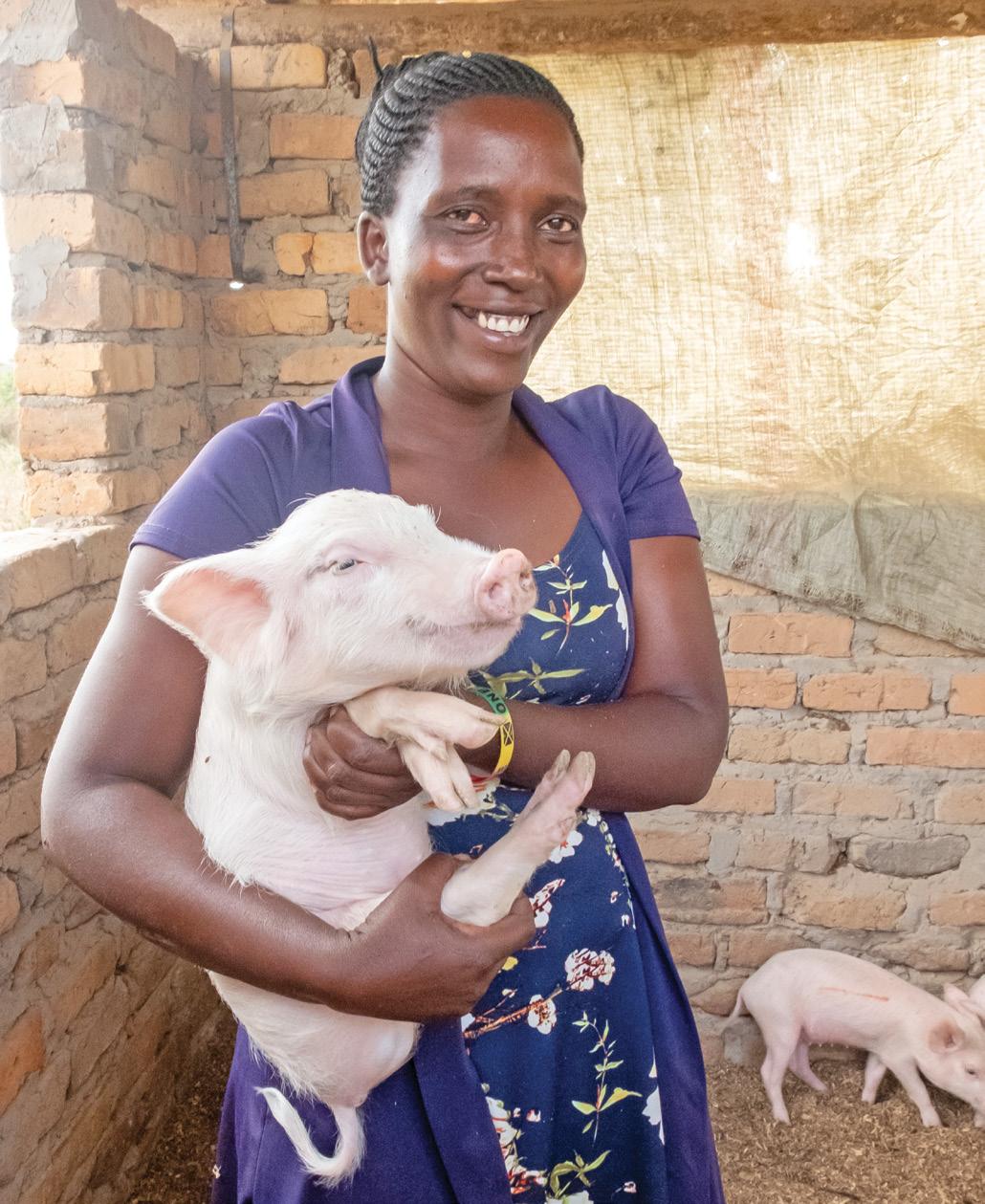
Ilero, who was the pig’s primary caregiver, named her Friend.
Ilero and Egadu needed a friend. The couple argued a lot about not having enough money to feed and educate their three children. Egadu worked in construction, but there wasn’t enough work.
They hoped Friend would help them, but they had no idea how much.
Friend gave birth to nine piglets in 2017. Ilero knew how to keep Friend and her piglets healthy because trainers from MCC partner Action for Peace and Development (APED) taught her and Egadu how to feed them and medicate them before APED gave them the pig.
Ilero sold each of the piglets for about $21, using the proceeds to buy a cow that she named Patience, who had a calf in 2018. Patience began producing milk that Ilero’s children can drink and used to make yogurt, cheese and
butter. She kept the calf so that it, too, could eventually produce, but she could sell it for about $160 as a yearling and about $266 as an adult if needed.
With Friend’s second litter of nine piglets, Ilero bought a sewing machine. And with the productive sow’s third litter of 10, she took sewing lessons. Now she can sew clothing for her family, including a fourth child born in 2019, and she can make clothing to sell.
With more income, she can buy some beef and fish to feed her children, ages three to 14, in addition to greens, grains and beans, and she can help pay for their school fees. She’s unwilling to eat her own pigs though. “I love them,” she says.
The gains kept growing. With funds from Friend’s fourth litter of piglets, she bought a grinder to make nut butter from the groundnuts she was already growing. In town, she can sell some 5 pounds of groundnut butter for about $2.15.
With Friend’s third and fourth litter and even more piglets from Peace, one of Friend’s offspring, Ilero and Egadu began to build a cement block house to replace their thatch-roofed clay house. It even has a room for her sewing and recordkeeping.
It’s not only her earnings that have grown. In addition to learning about raising pigs, Ilero and Egadu benefited from APED training on resolving conflicts. They now work together and plan together. “We join our hands together,” Ilero says.
And where she once waited on her husband to provide, she now can earn enough herself to buy food, oil or other things she needs. “I have changed,” she says. She delights in surprising her husband with a juice or a wrap, known locally as a rolex, during her trips to town. She can buy material and make clothes for her husband.
“I can even tell him, ‘This Christmas, you will not buy anything. It is me.’”
– Linda Espenshade, MCCIn addition to learning about raising pigs, Ilero and Egadu benefited from APED training on resolving conflicts. They now work together and plan together.MCC PHOTO/MATTHEW LESTER Mary Ilero was able to turn one pig and its litters of piglets into ongoing opportunities to make more money through selling her sewing, making nut butter and raising cows.
1938–2022
Beloved husband, dad, grandpa, brother, uncle and friend Ed Kroeker passed away unexpectedly on Friday, September 2, 2022, at Morris General Hospital after a short illness.
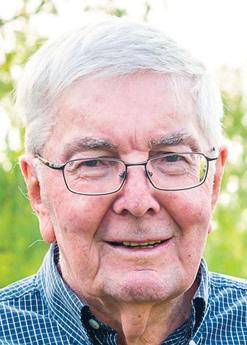
He is survived by his wife, Annie, four daughters: Jennifer, Elaine, Lavonne, and Stephanie and son-inlaw Nathaniel Klassen, and treasured grandchildren Jonas, Meg and Tobin. He is also mourned by his brothers Menno (Dorothy), Peter (Anne), Ron (Wendy) and Lorne (Helen) and sisters Elsie (Ernest) and Erna (Hank), and his in-laws (Eva, Bertha), the
Reimer family, and many nieces and nephews. Ed was predeceased by his parents, Peter L. and Annie Kroeker, siblings Henry, Willie, Jake, Mary and Martha, and stillborn son Kevin.
Ed was born on his family farm near Rosenort, Man., on January 29, 1938, and enjoyed an adventurous life growing up among his large family of brothers and sisters, work and play intertwined. He attended Rosenort School and later attended Steinbach Bible Institute. Winters were spent working in the bush in Ontario.
It was during these years that he met Annie Reimer in the church choir and they married on August 13, 1961. As a couple, they settled on a farm south of Rosenort and Ed farmed land near home as well as in the Kane/ Lowe Farm area. Ed also owned Ed’s Auto Body. Some challenging seasons were the loss of their son Kevin Peter, floods, and unpredictable crop conditions.
Dad’s faith was evident as he trusted God to provide what was needed and sought to accept God’s
plan for him and his family, even when it was not easy. Being raised by Christian parents, Ed chose to accept Jesus’ invitation to be his follower at 14 years of age and was baptized shortly after in what is now Rosenort EMC. He actively used his God-given gifts in multiple ways: camp committee, Sunday school teacher, missions committee, deacon couple, EMC Board of Missions, Project Builders, Canadian FoodGrains Bank and, most currently, Morris MCC Thrift Shop volunteer. His wisdom and peace-loving nature were valued by many. His desire was that all this would glorify God and be a witness to his grace.
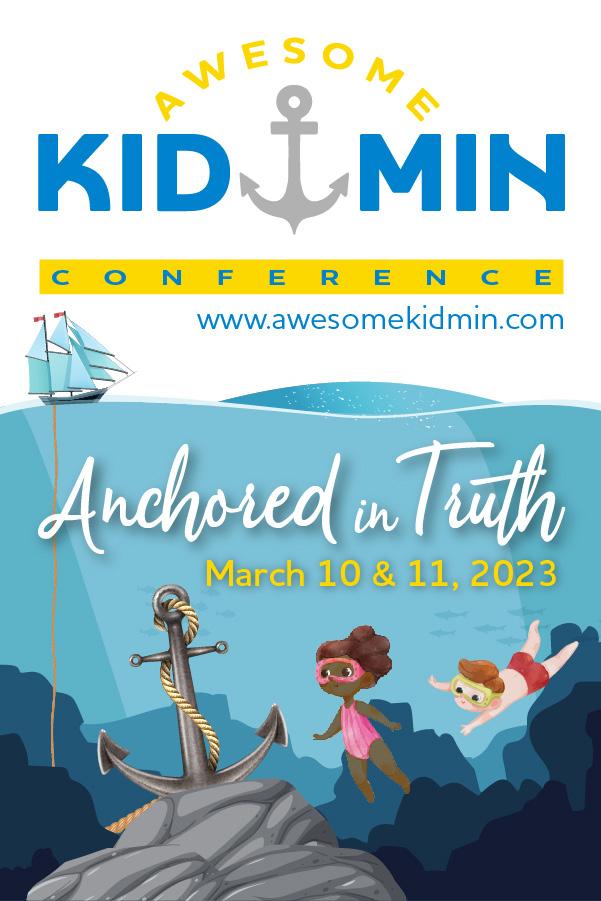
Dad experienced joy when travelling, restoring classic trucks and tractors, walking the Rosenort River Trail, meeting his Jake Horton’s coffee buddies very regularly, sharing stories with friends by the fireplace at the Heritage, hiking new trails with his family, biking and reading.
The funeral was held Saturday, September 10, 2022 at the Rosenort EMC.

For more information, visit: mcccanada.ca/comforters




Please send all position ads (150 words or less), including pastoral search ads, to messenger@emconference.ca. Ads may be edited. Please advise us when it is no longer needed.

Often there are more churches looking for senior, associate, youth, and interim pastors than are identified on this page. For information on additional openings, contact Conference Pastor Andy Woodworth (awoodworth@emconference.ca or phone 204-326-6401).
Children’s Ministries Director: Westpointe Community Church (Grande Prairie, Alta.)
Westpointe Community Church in Grande Prairie, Alta., is looking for a children’s ministries director. This is a full-time position. Wages will be dependent on qualifications and experience. For a detailed description of the position and how to apply please follow the link https://westpointecc.churchcenter.com/registrations/ events/1375014 or email your inquiry to westpointe@hotmail.com

Rosenort Fellowship Chapel (RFC) is seeking an associate pastor whose primary task will be youth ministry with secondary tasks to be determined. Our vision is to build a junior youth ministry (grades 7–9) while assisting in senior youth programs in the community.
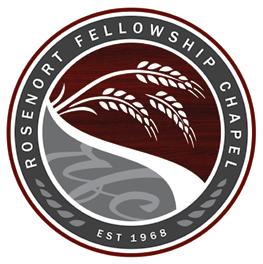
The applicant will be a person who loves Jesus Christ and aspires to help others know Christ. This person will be highly motivated to make an impact among youth with his/her own dedication to Christ and to lead, influence, and prepare our youth for life today. The applicant will have some Bible college and skills in communicating biblical truths. This person will work in cooperation with the leadership team.
RFC is a multigenerational congregation of 100 persons 30 minutes south of Winnipeg. We are theologically Anabaptists who long to Radically follow Jesus, Further the gospel, and Care for the community.
Email applications to Cam Cornelsen at cam.rfcleadership@gmail.com.
active in various community events. We are seeking a full-time senior pastor for our congregation to replace our recently retired pastor couple. Looking for a spiritually mature individual with a deep personal walk with Jesus, an engaging, enthusiastic individual who demonstrates sound biblical teaching and in-depth preaching as well as vision. Counselling skills would be an asset.
Contact Bernie Klassen at bande@ hwy16.com for more information. Check out our website at vcfemc.com.
Pastor of GermanSpeaking Ministry: Picture Butte Mennonite Church (Picture Butte, Alta.)
Picture Butte Mennonite Church (Picture Butte, Alta.) is prayerfully seeking to hire a full-time pastor to oversee our German-speaking ministry. PBMC currently holds an English and a Low German service each Sunday morning which both connects us to our cultural heritage and gives us a unique outreach opportunity to more traditional, Low German-speaking communities.
Senior Pastor: Taber Evangelical Church (Taber, Alta)

Taber Evangelical Church is actively searching for the senior pastor whom God has chosen to lead us into the future.
Taber EMC is a unique, growing, familyoriented church. Our regular Sunday attendance is about 250. If you feel the Lord leading you in this direction please send to: taberemcpsc@gmail.com.
Senior Pastor: Vanderhoof Christian Fellowship (Vanderhoof, B.C.)

Vanderhoof Christian Fellowship is in Vanderhoof, located on the banks of the Nechako River in the heart of British Columbia. Our mission is to love God, love our neighbour, and make disciples. Our vision is to serve our neighbour through loving, encouraging, and caring. We have a full Sunday program and both junior and senior youth programs. We have an active weekly seniors Bible study as well as weekly youth Bible studies. We are
We are looking for a man that is experienced in ministry with a strong ability to shepherd in preaching and teaching from the Scriptures in Low German as well as an ability to relate to and care for members of the Mennonite community. This pastor will also meet the biblical requirements for leadership in the church as laid out in 1 Timothy 3:1–7 and Titus 1:5–9.
For more information or to submit a resume, please contact Isaac Thiessen, Chair of Leadership, at 403-308-5093 or by email: isaact@genicadev.com.
The ConneXion in Arborg, Man., is seeking an interim pastor to provide leadership and support while we live out our community vision. The ConneXion is a diverse group of people that are seeking to make
Jesus the centre of all we do. We lean into the BELLS acronym discussed by Michael Frost in his book Exiles. Please reach out to 204-250-5534 or email theconnexion@ hotmail.com if interested.



St. Vital EMC Church is seeking to hire a part-time youth pastor who will lead and disciple our youth aged 15–18 years old. We are an established and friendly church in south Winnipeg with approximately 120 congregants who aspire to love God and live as Jesus Christ lived.
The successful candidate will demonstrate a passion for Christ through their vibrant and growing relationship with Jesus. Demonstrable leadership and influence among youth will mark this person’s character on a consistent basis as well as the ability to discern truth and obey God’s calling within the broader scope of the church’s ministry. The person taking this role needs to demonstrate the ability to work collaboratively on a small ministry team.

Previous applicable experience working with youth is essential. The position will require approximately 16 hours of time per week. A resume, with cover letter, can be sent to: Oswald at ozzy_wald@hotmail.com.
Morris Fellowship Chapel is a Christfollowing, Bible-believing, familyfriendly church of around 130 people in the small rural town of Morris, Manitoba. People of all ages are a part of Morris Fellowship, including children, young adults, adults and seniors. We are looking for a pastor to help with preaching, teaching, and building community in our church.
This would include preaching on Sundays, teaching midweek Bible studies, personal visits and church community events.
Contact Cliff Reimer, Pastoral Search Committee Chairman: cliff0955@gmail.com.
Associate Pastor: Straffordville Evangelical Mission Church (Straffordville, Ont.)
Straffordville
Evangelical Mission Church is seeking an associate pastor. SEMC is a rural church in a growing community with a congregation of about 160 people. We are a multigenerational congregation and have great existing ministries. We work hard at developing relationships in the community.
We are looking for male applicants who have a clear sense of calling and love for the body of Christ, to serve and equip her for works of service, stemming from a growing relationship with Christ. This person must be able to preach, teach and show pastoral care.
The successful applicant will work alongside the senior pastor and lay
ministers in preaching, teaching, care-giving, and providing resources and support to the other volunteer-based ministries in the church, according to his strengths and abilities.
Applicants must agree with the EMC Statement of Faith and display an understanding and general agreement with our Anabaptist theological background. Contact psc@straffordvilleemc.ca.
Communications Coordinator: Mennonite Community Services of Southern Ontario (Aylmer, Ont)
Mennonite Community Services of Southern Ontario (MCS), based in Aylmer, Ontario, is a not-for-profit charity providing services to newcomers and the community through its programs of settlement, education, employment, ethnic media and thrift store. MCS is owned by several area Mennonite Churches, including EMC, who send delegates to serve on the board of directors. MCS is currently looking for a communications coordinator The communications coordinator will be responsible to provide and coordinate public relations on behalf of MCS, provide oral and written communication for staff and constituents and maintain social media sites in alignment with the MCS Vision, Mission and Values. A full job posting can be found under www.mcson.org/ employment-opportunities. Those interested in joining the team can send a detailed resume and cover letter to hr@mcson.org.

“Lord, if you had been here, my brother would not have died.” (John 11:21, 32). I’ve been thinking about that statement recently. Actually, it’s been swirling around and around in my head as I’ve tried to sort out hard things.
I function on the faulty premise that God must’ve missed this. “Lord, if you had been here, I know that you would have done something. Since you missed it, I’ll offer a great Plan B for you to answer instead.” This seems easier for me than admitting, Lord, you were here. You are powerful … and you chose not to.
Now, I must wrestle with God’s apparent silence. The names of people burdening my heart and circumstances filling my mind are not trifle wishes and requests. I beg God for softened hearts and veils lifted from darkened lives (2 Corinthians 4:3–6). I assume these answers would bring God great glory and would accomplish much for his kingdom. But that’s from my perspective. I’m left with an immense hurt that the God who sees all things has allowed what makes no sense.
Recently, I decided that my two children were ready to learn piano. I was taught as a child in The Royal Conservatory of Music and even passed the Grade 8 examination. Surely, I could give back gratitude for my parent’s financial sacrifice by teaching their grandchildren!


I sat at the piano with my children beside me. Oh, the painful slowness! Fingers that won’t curve. Keys that clink down when only one was meant to strike. I imagine this is how I seem as I struggle with my unbelief. My brain trying to master the complexity of God’s sovereign symphony. My hands rigid and stiffly stuck in my own will.
What compels me to continue when tears blur even that which should be clear? A verse (though strange to hear as a comfort) has sweetly filled my heart. “The Lord disciplines those he loves” (Proverbs 3:12). Comfort from the firm hand of correction?
The squeezing, shaping humbling is a sign of my Father’s love, an assurance that he is working to conform me into his image. My quiet struggle with belief refines what it means to trust. God’s glorious plan is much larger than my momentary discomfort. His will is being fulfilled regardless of my assessment of rightness.
The development of my faith has been painful (as recorded in Hebrews 12:11). The pruning refines my beliefs about God through truths from the Scriptures. The God who disciplines is the God who binds my broken heart. The Good Shepherd leading me beside still waters. The
God of all comforts granting peace that passes understanding. The Holy Spirit interceding in my weakness.
Here I sit on the hard, wooden piano bench with a raw heart, but proper posture. I am ready for my lesson, fingers curved. “No discipline seems pleasant at the time, but painful. Later on, however, it produces a harvest of righteousness and peace for those who have been trained by it” (Hebrews 12:11).
Oh, the painful slowness! Fingers that won’t curve. Keys that clink down when only one was meant to strike. I imagine this is how I seem as I struggle with my unbelief.
How many supports do you need to keep you following Jesus? Constant streaming of Christian music? The best preaching on the internet? Annual sojourns on the Gaither Caribbean cruise? Do you need it?

What if God would rather show off, in your life, how he can bring a saint home with almost no provisions?
As a boy, I loved the story of Robinson Crusoe, the sailor stranded on an island for 28 years. The whole fun of this tale is set up the morning after the shipwreck when Robinson spies his abandoned ship run aground on a shoal some ways out to sea. For a few days, Robinson gets out to the ship on his homemade raft and salvages a few things before the ship breaks up in the surf and is lost forever.
Readers are given the list of what he gets off the ship. Every item he retrieves holds a special awe because we know how precious each thing will become. What makes the story crackle with adventure is how short that list is. The author could have ruined the story by making that list too long. Does Crusoe have the wits to survive with these few items? Some biscuits—better eat those before they go bad. A gun! Wow! But can he make the ammunition last? A barrel of rum! How long will that last? A bit of sail! That could make a tent (if he’s smart enough).
I think it was Eugene Peterson who first pointed out to me that Crusoe’s list demonstrates why the Christian life can be such an adventure. Following Christ drives us to keep asking the question, does God have the wits to get me home with the bits of provision he has given me?
I have access to a Bible. I have a Christian friend. I hear a sermon on Sunday, whatever the pastor was able to come up with. Not much, but it’s not nothing.
But I will only complain about this if I’m missing the point. The point of following Jesus is not to show that God can make me a spiritual glutton for 28 years at an all-inclusive
island resort with servants plying me with rum and roast lamb all day. The point is to show what God can do with little. In this, God will be glorified.
To me, this seems like a better posture toward the resources I see before me. My small group Bible study feels very different if I see it as one of a few things salvaged off a doomed ship. Wow! One evening Bible study with a few friends! Can I make that last if that’s all I’m going to get?
Here’s a thought: has COVID-19 been a Robinson Crusoe moment for the church, an attempt by God to deprive his gluttonous children of all but the barest necessities? Did you survive on what you were given? Give glory to God. Now let’s use those skills to be thrifty Christians, able to make much of meagre, meagre provisions.
Another thought: would our pastors have a healthier place in our churches if we all had a Crusoe mindset? Pastors are not here to make us spiritually obese. Pastors are here to give us a few biscuits each week and a small barrel of rum every 28 years, spiritually speaking. All we need each week is someone to say to us in plain speech, “God is great, God is good, and God is real. Now go out there and live on that.”
Can you make it home on that?
By Layton Friesen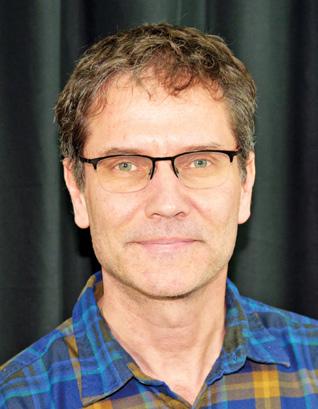
Wow! One evening Bible study with a few friends! Can I make that last if that’s all I’m going to get?
Small groupBy Loreena Thiessen
On the new calendar you have a new page, a new month, a new year: January 2023.
In the New Year you will have different and new experiences. Some will be your choice. For example, you may choose to go skating. You may choose to play a game with family or a friend. You feel like you’re in control, like, I can make this happen. You feel positive and happy.
However, you will also have experiences not in your control. You did not choose them. They may not make you feel happy. You wish they didn’t happen.
For example, you discover in the new year that your best friend is moving and will now attend a different school. You will see them less often. You feel lost and abandoned.
Or perhaps your parents have a busier than usual schedule and so cannot attend your concert or take you skating.
Maybe you or another family member has a bad case of the flu. Now they or you must rest a lot to recover.
All of these are difficult situations. Not what you wish for. You feel sad or disappointed. You may have negative thoughts. You may feel angry.

Negative thoughts are not bad; there are no bad emotions. For example, feeling sad can help you through a difficult time. Trying to be happy all the time is impossible. Feeling sad because you miss your friend helps you realize how much she meant to you. You valued the time you spent together, and the activities and interests you shared. You felt so happy with her.
So, what can you do?
First you can accept negative emotions. They are a part of your whole experience. Feeling sad is feeling something you lost. Your friend is no longer there. The loss is real.
Perhaps you can come up with a way to see her again. Maybe you can have a video chat, or text a plan to visit. Whenever you think of her you can pray. Ask God to protect her and keep her safe. You may get a new thought, an idea. Surprises, sometimes called miracles, do happen.
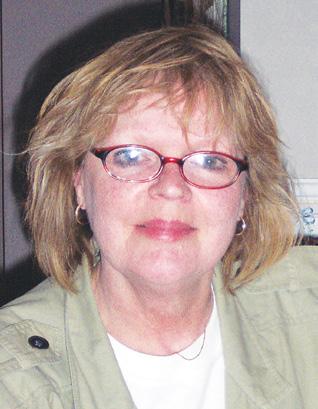
Activity: Create an “Awe” journal
Need: notebook, pencil, camera
Do:
• Find small moments of happiness and beauty.
• Record them by drawing or journalling them or snap a photo. Examples: a rainbow, sundog, sun halo, shooting star, full moon, animal tracks in fresh snow, laughter, a kindness, the aroma of fresh baking.
• Share with your family.
Another thing you can do is focus on helping someone nearby. Help a neighbour with yard work. Shovel a walk. Wheel someone’s garbage bin out to the street. Help a classmate with their homework. Share your favourite book with someone. Tell them why you like it. Read a part to them.
Recognize small moments that give you positive thoughts and make you feel happy, fresh snow on tree branches, sun dogs on a cold day, cool crisp air.
According to Romans 12:1–2, you can “be transformed by the renewing of your mind” as you surrender to God in worship.
Don’t miss out. Read Philippians 4:8.
Negative thoughts are not bad. For example, feeling sad can help you through a difficult time. Trying to be happy all the time is impossible.